Survivor Authors
In telling these stories, the writers have liberated themselves. For so many years we did not speak about it, even when we became free people living in a free society. Now, when at last we are writing about what happened to us in this dark period of history, knowing that our stories will be read and live on, it is possible for us to feel truly free. These unique historical documents put a face on what was lost, and allow readers to grasp the enormity of what happened to six million Jews — one story at a time.
David J. Azrieli, C.M., C.Q., M.Arch
Holocaust survivor and founder, The Azrieli Foundation
Judy Abrams
Judy Abrams, born in Budapest, Hungary, on April 28, 1937, immigrated to Montreal in 1949 and later taught French at the UN International School in New York City. Judy and her husband live in Montreal.
Judy Abrams is the author of Tenuous Threads and Retenue par un fil.
You can learn more about Judy Abrams’s story by visiting Re:Collection
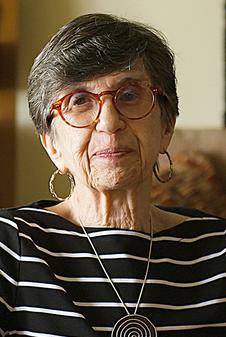
Amek Adler
Abram (Amek) Adler (1928–2017) was born in Lublin, Poland. He was liberated in April 1945, eventually reuniting with his mother and two of his brothers. Amek lived in Italy between 1945 and 1947, immigrated to Sweden in 1948 and then to Canada in 1954 with his wife, Ruth. In Toronto, Amek succeeded in both the fur industry and the jewellery business, becoming president of the Canadian Jewellers Association in 1989. Amek spoke to numerous audiences about his experiences during the Holocaust and educated countless students on March of the Living.
Amek Adler is the author of Six années volées and Six Lost Years .
You can learn more about Amek Adler’s story by visiting Re:Collection
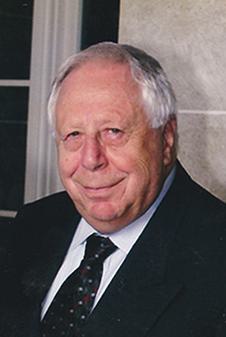
Ferenc Andai
Ferenc Andai (1925–2013) was born in Budapest, Hungary. He arrived in Canada in 1957, where he obtained an MA in Slavic Studies from the Université de Montréal and a teaching diploma from McGill University. He also earned his PhD in history (summa cum laude) from Eötvös Loránd University in Budapest. Ferenc was a history teacher and then head of a high school social science department. His book Mint tanu szólni: bori történet (To Bear Witness: A Story of Bor) was published by Ab Ovo in 2003 and awarded the Radnóti Miklós National Prize in 2004.
Ferenc Andai is the author of In the Hour of Fate and Danger .
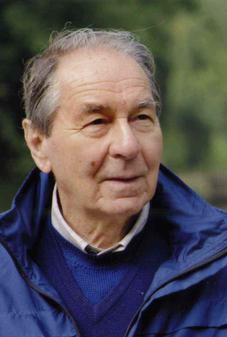
Molly Applebaum
Molly Applebaum was born in Krakow, Poland, in 1930. After the war, she spent three years in displaced persons camps before immigrating to Canada as a war orphan. Buried Words is the first English translation of the diary Molly wrote in Polish from March 1942 to January 1945, accompanied by the memoir she wrote in the 1990s. Molly Applebaum lives in Toronto.
Molly Applebaum is the author of Les Mots enfouis : Le Journal de Molly Applebaum and Buried Words: The Diary of Molly Applebaum .
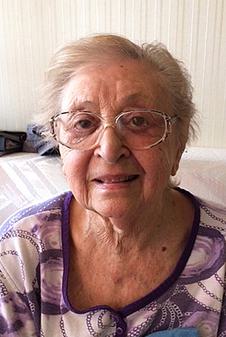
Claire Baum
Claire Baum was born in Rotterdam, the Netherlands, in 1936. She and her sister were liberated by the Canadian Army on May 5, 1945. She arrived in Canada with her family in 1951 and married Seymour Baum in 1956. Together they raised three children and built a very successful business. Claire has been a Holocaust educator since 1984, speaking predominantly to younger students about her experience during the war and her appreciation for living in Canada, the land of her liberators. Claire lives in Toronto.
Claire Baum is the author of Le Colis caché and The Hidden Package .
You can learn more about Claire Baum’s story by visiting Re:Collection
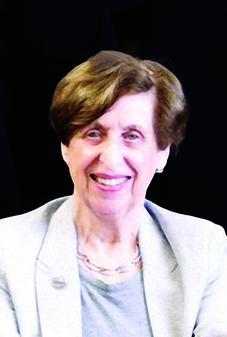
Bronia Beker
Bronia (née Rohatiner) Beker (1920–2015) was born in Kozowa, Poland (now Ukraine). She married Joseph Beker in 1945 and they came to Canada in 1948, where they raised their two daughters, Marilyn and Jeanne.
Bronia Beker is the author of Plus forts que le malheur and Joy Runs Deeper.
You can learn more about Bronia Beker’s story by visiting Re:Collection
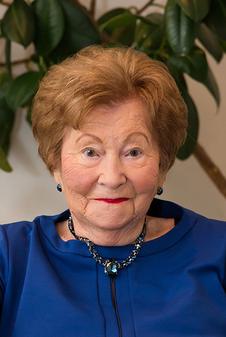
Joseph Beker
Joseph Beker (1913–1988) was born in Kozowa, Poland (now Kozova, Ukraine). In 1948, he immigrated to Canada with his wife, Bronia, where they worked and raised a family.
Joseph Beker is the author of Plus forts que le malheur and Joy Runs Deeper.
You can learn more about Joseph Beker’s story by visiting Re:Collection
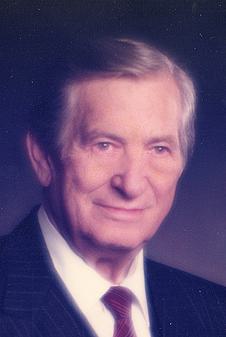
Tibor Benyovits
Tibor (Ted) Benyovits (1932–2020) was born in Budapest, Hungary. He immigrated to Israel in 1949, where he met his wife, Miriam, and where their first child was born. At the encouragement of relatives, they came to Toronto in 1962, where Ted eventually established a successful machinery business. He was a devoted and active member of his synagogue, Beit Rayim, and his love for Israel and Jewish life remained strong throughout his life.
Tibor Benyovits is the author of Unsung Heroes .
You can learn more about Tibor Benyovits’s story by visiting Re:Collection
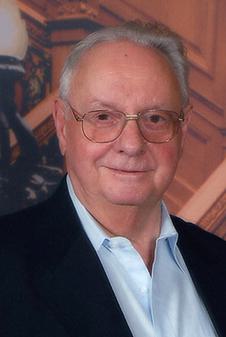
Yittel Nechuma Bineth
Yittel Nechuma Bineth (née Kornelia Paskusz) was born in Csorna, Hungary, in 1929. She was the youngest of eight children, and her mother, Lea Paskusz, was widowed six months prior to her birth. In 1944, when Yittel was fifteen years old, she was deported to the Auschwitz-Birkenau death camp. Her mother protected her throughout the year-long ordeal, and both survived. At the end of the war, they met up with their remaining surviving family and ventured home, but fled soon after, crossing into Austria. In 1950, Yittel married Yaakov Bineth in Vienna. After the birth of their first child, they left for Melbourne, Australia, where their family eventually grew to seven children. As it was important to them that their children grow up Orthodox, in their family tradition, they next moved to Montreal, into an established religious Jewish community. Their family was very successful in Montreal, establishing one of the first and biggest kosher bakeries and food establishments. Yittel raised nine children and many grandchildren and great-grandchildren, and she lives in Montreal.
Yittel Nechuma Bineth is the author of The Miracle of Our Survival from Confronting Devastation: Memoirs of Holocaust Survivors from Hungary.
Pinchas Eliyahu Blitt
Pinchas Eliyahu Blitt was born in Kortelisy, Poland (now Ukraine) in 1931 or 1932. Pinchas and his family immigrated to Canada in 1948 and settled in Montreal, where he attended teacher’s college and law school. In addition to a long career as a lawyer, Pinchas was involved in the Yiddish theatre community in Montreal for many years. Pinchas has three children. He lives in Montreal with his life partner, Gisele.
Pinchas Eliyahu Blitt is the author of A Promise of Sweet Tea .
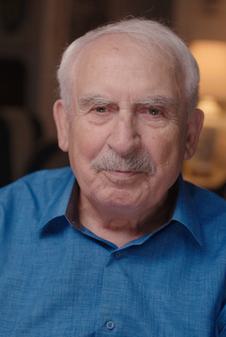
Hedy Bohm
Hedy Bohm was born in Oradea, Romania, in 1928. After the war, she married and escaped Communist Hungary with her husband, Imre, immigrating to Toronto, Canada, in 1948. Hedy had two children, and she and her husband owned and ran several shoe stores in downtown Toronto. Hedy is a yoga and tai chi instructor and an active speaker and Holocaust educator.
Photo by Justine Apple Photography, courtesy of Friends of Simon Wiesenthal Center.
Hedy Bohm is the author of Reflection .

Max Bornstein
Max Bornstein (1921–2015) was born in Warsaw, Poland. After living in Canada as a child, he arrived back on Canadian soil fourteen years later, in 1947. In Toronto, Max worked in the garment industry, married Minnie and raised two children. He maintained an avid interest in quantum physics, international politics and in Judaism and Israel. Late in life, Max discovered his ability to play the piano and frequently entertained the residents in his long-term care home.
Max Bornstein is the author of Citoyen de nulle part and If Home Is Not Here .
You can learn more about Max Bornstein’s story by visiting Re:Collection
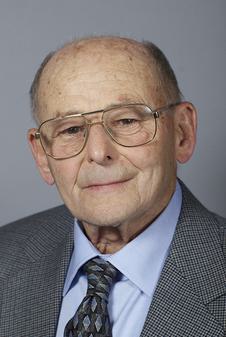
Chana Broder
Chana Broder was born in Siemiatycze, Poland, in 1938. After the war, she lived in a displaced persons camp in Italy before immigrating to Montreal in 1948. In Montreal, she continued her education, married and raised a family. In 1972, Chana and her family moved to Israel, where Chana became an ESL teacher. In 2013, she reunited with the descendants of her wartime rescuers and had them recognized as Righteous Among the Nations. Chana lives in Israel.
Chana Broder is the author of Daring to Hope .
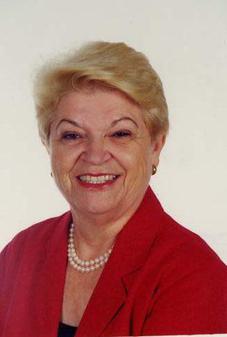
Salomon Buch
Salomon Buch est né en 1923 à Paris, en France, et sa sœur Denise y est née en 1924. Après la guerre, ils demeurent à Paris, où ils reconstruisent leur vie. En 1952, Salomon et sa famille, suivis par Denise et son époux, émigrent au Canada. Jusqu’au décès de Salomon en 2020, le frère et la sœur ont vécu l’un près de l’autre à Montréal.
Salomon Buch is the author of Un serment à la vie .

Sonia Caplan
Sonia Caplan (née Roskes) (1922–1987) was born in Białystok, Poland and was raised in the city of Tarnów. After being held in the Tarnów ghetto for more than two years and the Liebenau internment camp in Germany for another two years, Sonia was released to Switzerland with her mother and sister in January 1945, and they arrived in Canada in February 1945. In Montreal, Sonia reunited with family, married and raised three children while pursuing studies in literature, her lifelong passion.
Sonia Caplan is the author of Passport to Reprieve .
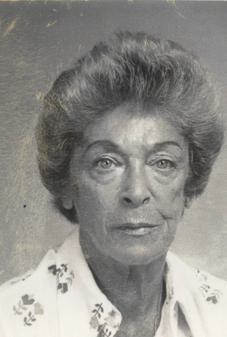
Felicia Carmelly
Felicia Carmelly (1931–2018) was born in Vatra Dornei, Romania. In 1959, Felicia and her family emigrated from Communist Romania to Israel. Three years later they immigrated to Canada, where Felicia earned her master’s degree in social work. Felicia founded Toronto’s Transnistria Survivors’ Association in 1994 and published the anthology Shattered! 50 Years of Silence: History and Voices of the Tragedy in Romania and Transnistria in 1997.
Felicia Carmelly is the author of Across the Rivers of Memory .
You can learn more about Felicia Carmelly’s story by visiting Re:Collection
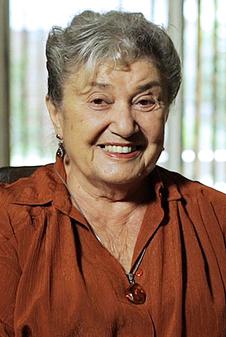
Ben Carniol
Ben Carniol was born in Teplitz-Schönau (Teplice-Šanov), Czechoslovakia (now Teplice, Czech Republic), in 1937 and moved with his parents to Brussels, Belgium, in 1939. He immigrated to Canada as an orphan in 1947 and was adopted by his mother’s family in Ottawa. Ben became a social worker and worked in the fields of social advocacy, social services and social work education in Cleveland, Montreal, Calgary and Toronto. He authored the seminal book Case Critical: Social Services and Social Justice in Canada. Ben is professor emeritus at Toronto Metropolitan University, was scholar-in-residence at Laurier University’s Indigenous Field of Study social work program and was awarded an honorary life membership for distinguished contributions to social work education in Canada by the Canadian Association for Social Work Education. He and his wife, Rhona, live in Toronto.
Ben Carniol is the author of Hide and Seek: In Pursuit of Justice .
Stefan A. Carter
Stefan Carter (1928-2023) was born in Warsaw, Poland. In 1948, he immigrated to Winnipeg, Manitoba, and enrolled in medical studies at the University of Manitoba. Stefan graduated from the Faculty of Medicine in 1954 and went on to have an illustrious career in vascular medicine. In 1958, he married Emilee Horn and they raised two children. Stefan was an advocate for Holocaust education in Winnipeg and spoke to many students about his wartime experiences. He was a long-time badminton player and classical music aficionado, and his book Mozart: A Meditation on His Life and Mysterious Death was published in 2006.
Stefan A. Carter is the author of A Symphony of Remembrance .
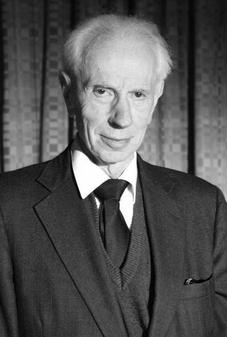
Judy Cohen
Judy Weissenberg Cohen was born in Debrecen, Hungary, in 1928. She is an active speaker and Holocaust and human rights educator, and in 2001 she founded the website “Women and the Holocaust,” which collects testimony, literature and scholarly material exploring the specific gender-based experiences of women in the Holocaust. Judy Cohen lives in Toronto.
Judy Cohen is the author of A Cry in Unison .
You can learn more about Judy Cohen’s story by visiting Re:Collection
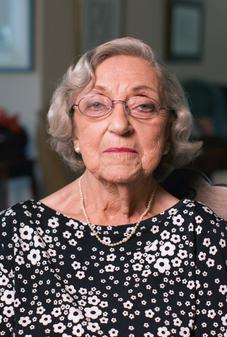
Victor David
Victor David (né David Mojzesz) (1922-2024) was born in Przemyśl, Poland. During the early years of World War II, Victor lived and worked in Lwów as a forced labourer for the SS. After an SS officer he befriended suggested he flee to Hungary, which was considered safer at the time, Victor escaped across the border in September 1942. In Hungary, Victor eventually secured false identity papers and sought shelter in Budapest and Nagyvárad before fleeing once again, this time to Romania, after the German occupation of Hungary. In Romania, Victor was interned in the Târgu Jiu camp until Romania surrendered to the Allies and he was liberated. After the war, Victor lived in Budapest and Bucharest before smuggling himself into Italy, where he lived in Fano, met and married his wife, Ruth, and worked for the Jewish Agency and then El Al airlines. In 1951, Victor and Ruth immigrated to Montreal, where he operated a travel agency until his retirement in 1985.
Victor David is the author of My Escape to and from Hungary from Confronting Devastation: Memoirs of Holocaust Survivors from Hungary.
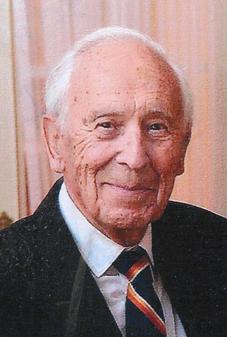
Esther Davidovits
Esther Davidovits (née Basch) was born in Remete (now Remeți), Romania, in 1930 to Baruch and Lia Basch and was the youngest of nine children. In 1940, Remete came under Hungarian rule and in April 1944, Esther was sent to the Técső ghetto; one month later she was deported to Auschwitz-Birkenau. In September 1944, she was sent on a transport to the brutal Stutthof concentration camp and then to a subcamp in Thorn (Toruń), Poland. Esther was liberated in March 1945 from the nearby city of Danzig (now Gdańsk, Poland) with two of her sisters; tragically, one of her sisters died soon after liberation. After returning to Remete, Esther reunited with Itzik, a childhood friend of the family. They married in 1947 and lived in Ústí nad Labem, Czechoslovakia, until 1949, when they fled the Communist regime with their son, Isi, and arrived in Austria. Esther and Itzik raised their first two children, Isi and Sam, in displaced persons camps in Austria. In March 1951, they journeyed to Toronto, where their daughter, Leah, was born. Esther has three children, nine grandchildren and six great-grandchildren, and she lives in Toronto.
Esther Davidovits is the author of Hiding from the Germans, Running from the Soviets from Confronting Devastation: Memoirs of Holocaust Survivors from Hungary.
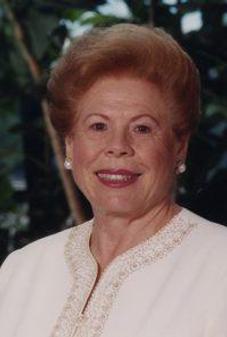
Itzik (Ike) Davidovits
Itzik (Ike) Davidovits (1920–2015) was born in Remete (now Remeți), Romania. He was the sixth of nine children born to Yzuel and Fagie (Fanny) Davidovits and grew up working on his family’s farm. In 1940, Remete came under Hungarian rule, and in 1941 Ike was conscripted into a forced labour battalion as part of Hungary’s labour service. Ike toiled in the service for four years, then became a Soviet prisoner-of-war and then a recruit of the Czechoslovak army. After the war, Ike reunited with his four surviving sisters; his mother, grandmother, three sisters and his brother perished. He also reunited with Esther, a family friend, and they married in 1947. In 1949, after their first son, Isi, was born, Ike and Esther escaped the Communist regime in Czechoslovakia. In a refugee camp in Linz, Austria, their second son, Sam, was born. In March 1951, the family journeyed to Toronto, where their third child, Leah, was born, and where Ike established a roofing and sheet metal business.
Itzik (Ike) Davidovits is the author of Like Slaves in Pharaoh’s Time from Confronting Devastation: Memoirs of Holocaust Survivors from Hungary.
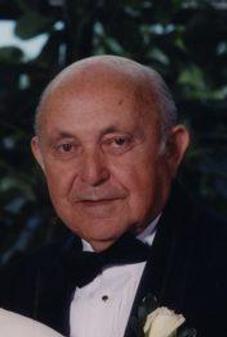
Ifa Demon
Ifa Demon, née Szyfra Zytler (1923–2015) and married under the name Szyfra Dmiszewicki, was born in Baranowicze, Poland (now Baranovichi, Belarus). During the war, to escape the Nazis, she worked for the railroad as a bookkeeper on a collective farm in Kazakhstan in Central Asia. Ifa married Morris Demon in 1945 and they immigrated to Toronto in 1949 with their two-year-old son, Marvin; their son Brian was born in 1956. Through Ifa’s innate business acumen, sheer determination and hard work, she and Morris built up a successful real-estate portfolio. Ifa was fluent in nine languages, wrote numerous well-received Jewish poems and was a regular guest on the Toronto Sunday Jewish Hour for a number of years, reading her poetry. She also wrote a number of articles on Israel, world affairs and Jewish life. Ifa was an ardent Zionist who devoted her life to many charitable Jewish causes, including Friends of Pioneering Israel, the Lithuanian Society and Baycrest, and she was an active member of the UJA Endowment Committee. Ifa Demon had two sons, two daughters-in-law, seven grandchildren and six great-grandchildren.
Ifa Demon is the author of “Let Their Memory Live Forever” from Before All Memory Is Lost: Women's Voices from the Holocaust and Que leur souvenir demeure à jamais from Un combat singulier : Femmes dans la tourmente de l’Holocauste.
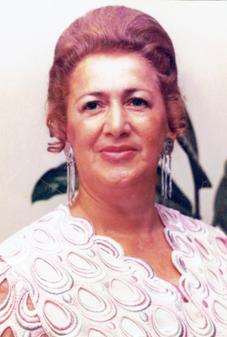
Tommy Dick
Tommy Dick (1925–1999) was born in Budapest, Hungary. In 1948, he immigrated to Canada and eventually settled in Calgary. At the age of thirty-six, Tommy enrolled in law school and practiced law in Calgary for thirty years.
Tommy Dick is the author of Objectif : survivre and Getting Out Alive .
You can learn more about Tommy Dick’s story by visiting Re:Collection
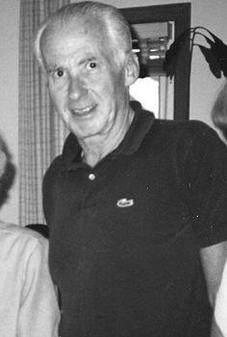
Ida Dimant
Ida Dimant (née Ita Urbach) (1918–1988) was born in Lodz, Poland. She married Abram Toter in the Lodz ghetto just weeks prior to their deportation in 1944 to Auschwitz-Birkenau. After the war, she found her brother, Nathan, in Lodz and learned that her husband and her entire family had not survived. Ida soon met and married Abraham Dimant and they went to Bergen-Belsen, from where he had been liberated. Their first daughter, Sharon, was born there in 1947. In 1948 they immigrated to Canada and had two more daughters — Lorraine in 1949 and Sylvia in 1952. Tragically, Sharon passed away in Toronto at the young age of thirteen. Ida loved music and sang often to her only grandchild, Nicole. After Ida took formal English lessons through an ESL (English as a second language) class offered in her apartment building, she had the confidence to write her memoirs, which her family found when they were sitting shiva for her.
Ida Dimant is the author of To My Daughters from Before All Memory Is Lost: Women's Voices from the Holocaust and À mes filles from Un combat singulier : Femmes dans la tourmente de l’Holocauste.
Marie Doduck
Marie (Mariette) Rozen Doduck was born in Brussels, Belgium, in 1935. She immigrated to Canada in 1947 as a war orphan with three of her siblings and settled in Vancouver. In 1955, she married her husband, Sidney, and raised three children. Marie is actively involved in Holocaust education and is a cofounder of the Vancouver Holocaust Education Centre. She has received awards for her community leadership work and activism, and in 2024, she was honoured with the Order of Canada.
Marie Doduck is the author of L’Enfant du silence and A Childhood Unspoken .
You can learn more about Marie Doduck’s story by visiting Re:Collection
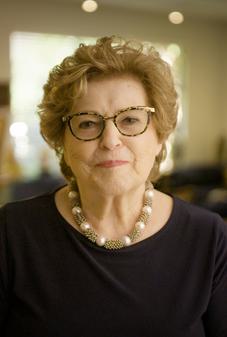
Marian Domanski
Marian (Finkelman) Domanski (1928–2012) was born in Otwock, Poland. He joined the Polish air force after the war and worked as a photographer before moving to Denmark in 1968. He immigrated to Canada two years later, where he was very active in Toronto’s Polish-Jewish community.
Marian Domanski is the author of Traqué and Fleeing from the Hunter .
You can learn more about Marian Domanski’s story by visiting Re:Collection
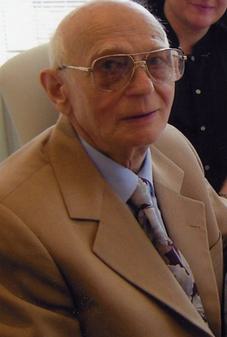
Alexander Eisen
Alexander Eisen (1929-2024) was born in Vienna, Austria, into a middle-class family with two older sisters, Jitti and Litzi. In 1938, after Austria was annexed to Germany, Alex’s family fled to Hungary, where both of his parents were born. Alex’s father was arrested for carrying foreign currency but escaped to Palestine, while Alex, his mother and his two sisters remained in Budapest. During the German occupation of Hungary, Alex’s paternal and maternal families were deported to Auschwitz-Birkenau, as was his oldest sister, Jitti. Alex, his mother and Litzi were held in the Budapest ghetto. They escaped and hid on the outskirts of Budapest, using false identity papers until liberation. After the war, they reunited with Alex’s sister Jitti, who had survived Auschwitz. In 1946, Alex boarded an illegal ship bound for Palestine and his father. After being interned in Cyprus he eventually reached Jerusalem, where he fought in the War of Independence. Alex met his wife, Renata, in the Israeli Air Force. In 1952, they immigrated to Toronto, where Alex worked as a design engineer at both Motorola and General Electric. Alex has two children and five grandchildren.
Alexander Eisen is the author of A Time of Fear from Confronting Devastation: Memoirs of Holocaust Survivors from Hungary.
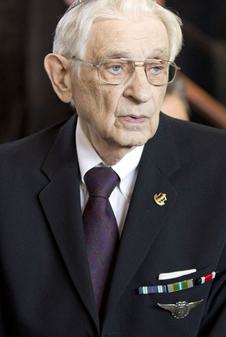
Anita Ekstein
Anita Helfgott Ekstein was born on July 18, 1934, in Lwów, Poland (now Lviv, Ukraine). After the war, Anita and her aunt immigrated to Paris, arriving in Toronto in 1948. A dedicated Holocaust educator, Anita founded a group for child survivors and hidden children in Toronto, participated in the March of the Living eighteen times and has spoken to thousands of students. Anita lives in Toronto.
Anita Ekstein is the author of Always Remember Who You Are .
You can learn more about Anita Ekstein’s story by visiting Re:Collection
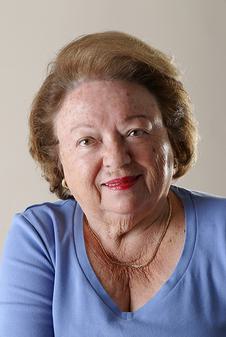
Margalith Esterhuizen
Margalith Esterhuizen was born in Rădăuți, Romania, in 1927. In early 1944, Margalith was released from a ghetto in Transnistria, and in May 1945, she arrived in British Mandate Palestine (now Israel). There, she attended college, worked, and married and started a family. In 1954, Margalith and her husband, Bill, moved to South Africa, where he had grown up, to continue raising their family. Margalith worked in real estate, a field she continued in when she and Bill immigrated to Canada in 1989 to join their children. Margalith Esterhuizen passed away in 2025.
Margalith Esterhuizen is the author of A Light in the Clouds .
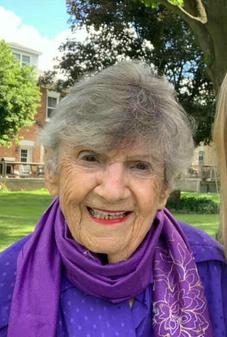
Leslie Fazekas
Leslie Fazekas (1925-2023) was born in Debrecen, Hungary. After the war, he reunited with Judit (Judy), and they married in Budapest in 1949. Leslie returned to school and earned his mechanical engineering diploma at the Technical University of Budapest. In 1956, Leslie and his family immigrated to Toronto, where Leslie attended the University of Toronto for computer programming, a field he worked in until he retired in 1988.
Leslie Fazekas is the author of In Dreams Together and Fate and Fortune from Confronting Devastation: Memoirs of Holocaust Survivors from Hungary.
Ellen Foster
Ellen (Ilonka) Foster (1935–2022) was born in Budapest, Hungary. She immigrated to Canada in 1948. Ellen moved to Los Angeles in 1952, where she worked and raised a family.
Ellen Foster is the author of Unies dans l’épreuve and Never Far Apart .
You can learn more about Ellen Foster’s story by visiting Re:Collection

John Freund
John Freund was born in České Budějovice, Czechoslovakia (now Czech Republic), in 1930. During the Nazi occupation, John took part in writing for a clandestine magazine called Klepy (Gossip). Original copies of the publication were recovered and are now held at the Jewish Museum in Prague. After the war, as a war orphan, John qualified to immigrate to Canada, and he arrived in 1948. John lives in Toronto with his wife, Nora, enjoying the city’s cultural arts, galleries and museums.
John Freund is the author of La Fin du printemps and Spring's End .
You can learn more about John Freund’s story by visiting Re:Collection
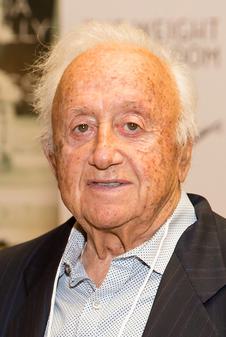
Susan Garfield
Born Zsuzsanna Löffler in Budapest in 1933, Susan Garfield immigrated to Canada as a war orphan in 1948 and lived in Vegreville, Alberta, before moving to Winnipeg, Manitoba, where she still lives. Susan's English translation of her Hungarian wartime diary was published in Voices of Winnipeg Holocaust Survivors (2010), and her story as a new immigrant to Canada was told in Holocaust Survivors in Canada: Exclusion, Inclusion, Transformation, 1947-1955 (2015).
Susan Garfield is the author of Too Many Goodbyes: The Diaries of Susan Garfield .
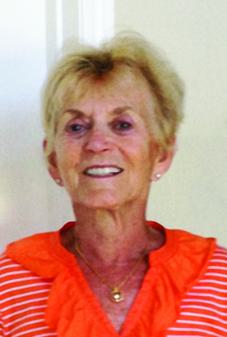
Myrna Goldenberg
Myrna Goldenberg is the co-editor of Different Horrors, Same Hell: Gender and the Holocaust (2013) and Experience and Expression: Women, the Nazis, and the Holocaust (2003), as well as a number of other publications. A professor emerita of Montgomery College, Maryland, Goldenberg’s research focuses on gender and the Holocaust and on teaching the Holocaust in the university and college classroom.
Myrna Goldenberg is the editor of Un combat singulier : Femmes dans la tourmente de l’Holocauste and Before All Memory Is Lost: Women's Voices from the Holocaust.
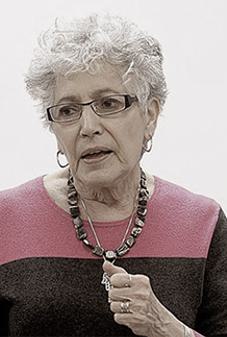
Fishel Philip Goldig
Fishel Philip Goldig was born in Mielnica, Poland (now Melnytsia-Podilska, Ukraine), in 1933. He immigrated to Montreal in 1948, where he established various businesses while also becoming a professional singer, cantor and theatre performer. Fishel lives in Montreal and is dedicated to Holocaust education.
Fishel Philip Golding is the author of The Survival Story of a Six-Year-Old Boy from At Great Risk: Memoirs of Rescue during the Holocaust and Le récit de survie d’un jeune garçon from Un si grand péril : mémoires de sauvetage durant l’Holocauste.
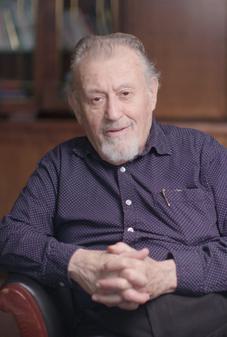
René Goldman
René Goldman was born in Luxembourg on March 25, 1934. After the war, he lived in children’s homes outside Paris and then pursued his education in Poland. In 1953, René left for Beijing, where he studied Chinese language, literature and history. He graduated from Columbia University and then joined the faculty of the University of British Columbia, where he taught courses in Chinese history. René Goldman lives in Summerland, British Columbia.
René Goldman is the author of Une enfance à la dérive and A Childhood Adrift .
You can learn more about René Goldman’s story by visiting Re:Collection
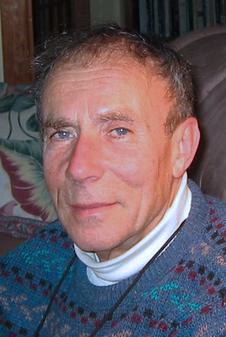
Elly Gotz
Elly Gotz was born in Kovno (Kaunas), Lithuania, in 1928. In 1947, Elly and his parents immigrated to Norway and then to Zimbabwe. Elly immigrated to Toronto in 1964, where he established various businesses and achieved his lifelong dream of becoming a pilot. In 2017, at age eighty-nine, he fulfilled another aeronautical dream by going skydiving.
Photo by Hasnain Dattu.
Elly Gotz is the author of Flights of Spirit.
You can learn more about Elly Gotz’s story by visiting Re:Collection
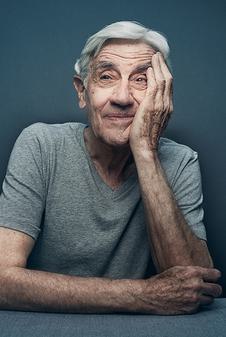
Sandor (Sam) Grad
Sandor (Sam) Grad (1931-2021) in Újfehértó, Hungary. His parents, Armin and Frida, decided to move to Palestine in 1935 with him and his older sister, Eva, but returned to Hungary in 1936 after Eva died from pneumonia. Sam’s three brothers, David, Herschel and Irwin, were born after their return. In 1944, after Germany occupied Hungary, Sam and his family were sent to a ghetto, from where they were deported to Auschwitz-Birkenau. His brothers and mother were murdered, and Sam survived only because he was sent to a forced labour camp after lying about his age. From there he endured a death march and multiple concentration camps, including Gross-Rosen and Theresienstadt, where he was liberated by the Soviets. After the war, Sam reunited with his father, and in 1949 he left Hungary for Israel, where he served in the military and worked in various industries. In 1957, Sam immigrated to Toronto to be with his father and stepmother. He married Josephine (Josette) Sosiewicz in 1961 and started an electronics distributing company called Prudential Distributors.
Sandor (Sam) Grad is the author of Eviction and Terror from Confronting Devastation: Memoirs of Holocaust Survivors from Hungary.
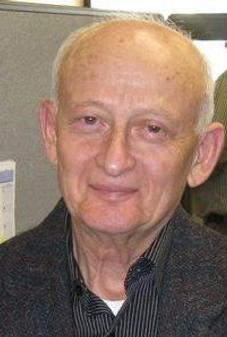
Ibolya Grossman
Ibolya Grossman (1916–2005) was born in Pécs, Hungary, in 1916. After the war, she was arrested and jailed by the Communist regime in Hungary for trying to escape the country. On her second attempt she succeeded with her son, Andy, immigrating to Canada in 1957. Ibolya first wrote and published her memoirs in 1990.
Photo by Jason Schwartz
Ibolya Grossman is the author of Stronger Together .
You can learn more about Ibolya Grossman’s story by visiting Re:Collection

Pinchas Gutter
Born in Lodz, Poland, on July 21, 1932, Pinchas Gutter was the only member of his immediate family to survive the Holocaust. After being liberated in Theresienstadt in 1945, Pinchas was brought to England as part of a program supporting war orphans. He lived in France, Israel, Brazil and South Africa before immigrating to Canada in 1985. Dedicated to Holocaust education, Pinchas was the first Holocaust survivor to be immortalized in an interactive three-dimensional projection in the USC Shoah Foundation’s Dimensions in Testimony. He has continued to be a leader in Holocaust education, and in 2024, he was honoured with the Order of Canada.
Pinchas Gutter is the author of Memories in Focus and Dans la chambre noire.
You can learn more about Pinchas Gutter’s story by visiting Re:Collection
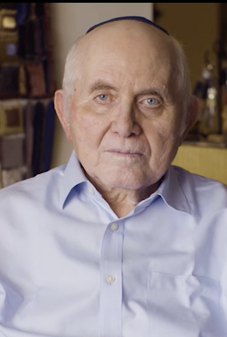
Anna Molnár Hegedűs
Anna Molnár Hegedűs (1897–1979) was born in Szatmár, Hungary (now Satu Mare, Romania). In 1921, she married Zoltán Hegedűs,and they raised two children, János and Ágnes. Anna and her daughter were imprisoned in Auschwitz-Birkenau together, an uncommon occurrence given Anna’s age and the selection process. Anna immigrated to Israel in 1950 and to Montreal in 1952, where she became a devoted neonatal nurse, staying with mothers and their newborns for a week to several months, often maintaining relationships with the families.
Anna Molnár Hegedűs is the author of Pendant la saison des lilas and As the Lilacs Bloomed .
You can learn more about Anna Molnár Hegedűs’s story by visiting Re:Collection
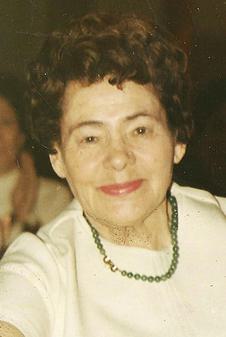
Pinchas Hirschprung
Rabbi Pinchas Hirschprung (1912–1998) was born in Dukla, Poland. In 1941, he managed to escape Europe for Japan, immigrating to Montreal nine months later. A world-renowned Torah and Talmudic scholar, Rabbi Hirschprung became the chief rabbi of Montreal in 1969 and led its Jewish community until his death. Rabbi Hirschprung’s Yiddish-language memoir was published in 1944 and translated into Hebrew in 1948; The Vale of Tears is its first English translation.
Pinchas Hirschprung is the author of The Vale of Tears .
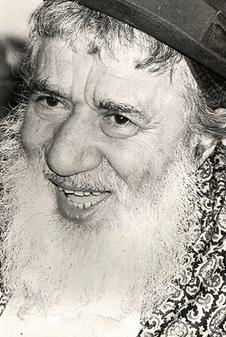
Kathleen (Kati) Horváth
Kathleen (Kati) Horváth (née Spitzer) (1919-2019) was born in 1919 in Budapest, Hungary. She grew up with her parents, Margit (Manci) and Herman Spitzer, and her older brother, Ivan. Her father died by suicide in 1932. Kati married Paul (Pali) in 1938, and their son, Adam, was born in 1941. Kati and her new family moved to the town of Túrkeve. In 1944, one day before Germany occupied Hungary, Kati and Adam were in Budapest; unable to return to Túrkeve, they luckily avoided the deportation from their town. Kati, her son and her mother survived in Budapest in hiding in a nunnery, under false identities and with Schutzpässe from diplomat Raoul Wallenberg. After the war, Kati reunited with her husband, who had been deported to Auschwitz-Birkenau. They had twin daughters, Éva and Gabriella, in 1946. Tragically, Pali died in 1948. Kati found work as a “draftsman” for Budapest’s city hall, the first woman to hold the position. During the 1956 Hungarian Revolution, she and her children fled Hungary and arrived in Montreal. Kati worked as a draftsperson for Steinberg’s grocery in Montreal for twenty-two years. Kati Horváth passed away in 2019, soon after reaching her 100th birthday.
Kathleen (Kati) Horváth is the author of Rowing on Ice from Confronting Devastation: Memoirs of Holocaust Survivors from Hungary.
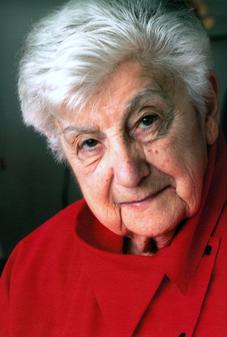
Bronia Jablon
Bronia Jablon (1918–1994) was born in Dubno, Poland (now Ukraine). She survived the war with her daughter, Lucy. After the war, she completed her nursing degree in the Soviet Union and then lived in Poland and Israel before immigrating to Canada to be with her daughter and grandchildren in 1967.
Bronia Jablon is the author of A Part of Me .
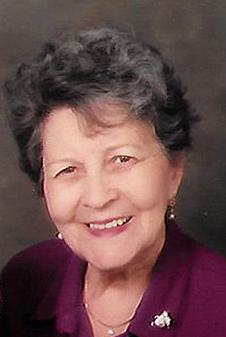
Johnny Jablon
Johnny (Ephroim) Jablon (né Jan Rothbaum) (1926–2023) was born in Krakow, Poland. After the war, Johnny lived in the Bindermichl DP camp in Austria. In 1948, as a war orphan, he immigrated to Montreal.
Johnny Jablon is the author of A Lasting Legacy and Souvenez-vous.
You can learn more about Johnny Jablon’s story by visiting Re:Collection
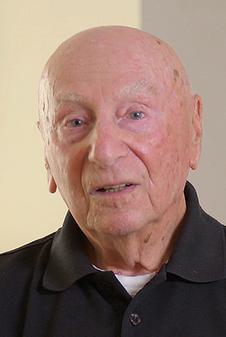
Julius Jakab
Julius Jakab (1923–2014) was born in Cluj, Romania, which became Kolozsvár in 1940 when the city came under Hungarian rule. In 1944, at the age of twenty, Julius was drafted into the Hungarian army as a forced labourer. After Julius was captured by the Nazis, he endured two subcamps of the Dachau concentration camp. While on a death march to Dachau, Julius escaped, surrendering to nearby American soldiers. After the war, with no family left in Hungary, Julius moved to Argentina, where he met his wife, Vilma, and had a son. They immigrated to Canada in the 1960s, where Julius reunited with his brother, Louis. Julius painted and wrote poetry throughout his life, and he enjoyed spending time with family, including his grandchildren and great-grandchildren.
Julius Jakab is the author of Apples at Christmas from Confronting Devastation: Memoirs of Holocaust Survivors from Hungary.
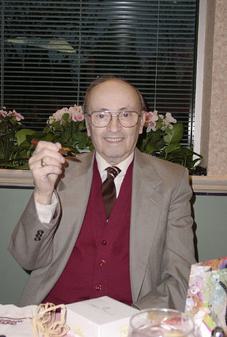
Helena Jockel
Helena Jockel (née Kahan) (1919–2016) was born in Mukačevo, Czechoslovakia (now Mukachevo, Ukraine). After the war, she returned to Czechoslovakia and in 1948 married her widowed brother-in-law, Emil Jockel. They remained in Czechoslovakia until Helena retired. In 1988, Helena and Emil moved to Canada to join their family.
Helena Jockel is the author of Nous chantions en sourdine and We Sang in Hushed Voices .
You can learn more about Helena Jockel’s story by visiting Re:Collection
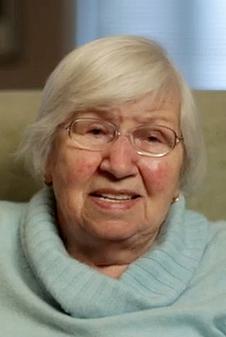
Eva Kahan
Eva Kahan (1922–2016) was born in in Budapest, Hungary, where she grew up with her parents, Alfred and Katalin, her grandparents and her brother, Gyuri (George). Eva’s mother died unexpectedly in 1937, and in 1942, George was drafted into a forced labour battalion, never to return. In 1944, after Germany occupied Hungary, Eva met Lajos (Louis) Kahan, who was an inmate in a labour camp near her home. After they married, Lajos obtained false identity papers, and they lived a double life until liberation. When the Hungarian Revolution started in 1956, Eva and Lajos and their daughter, Kathi, escaped with one small suitcase, sneaking across the border into Austria and then making their way to Montreal in January 1957. There, Eva worked at several jobs, often simultaneously, learning bookkeeping while working as a seamstress in a factory. Eva exercised every day, even up to the age of ninety, and enjoyed playing the piano for the other residents of her retirement home. She had two grandchildren and two great-grandchildren.
Eva Kahan is the author of To Start off as a Christian but to Arrive as a Jew from Confronting Devastation: Memoirs of Holocaust Survivors from Hungary.
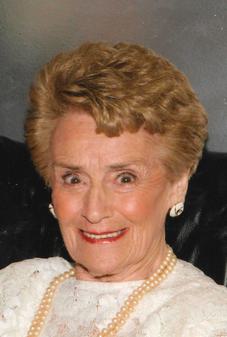
Moishe Kantorowitz
Moishe Kantorowitz (1923–2008) was born in the town of Shershev, Poland (now Šarašova, Belarus). After the Holocaust, he immigrated to Canada and became a farmer near Brockville, Ontario, for two years. There, Moishe met his wife, Ruth, and they moved to Montreal, where Moishe ran a convenience store and deli. In 1956, Moishe and his family moved to St. John’s, Newfoundland, where he worked as a travelling salesman. Moishe was active in the Jewish community in St. John’s, and in 1995, he received an honorary degree from Memorial University of Newfoundland for his work in the field of Holocaust education.
Moishe Kantorowitz is the author of Lament .
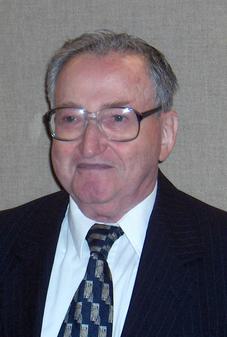
Margit Kassai
Margit Kassai (1909–2000) was born in Budapest, Hungary. She and her husband, György Tolnai, left Hungary for France in 1946, where they had a daughter. In 1948, Margit immigrated to Canada, settling in Toronto with her family. She worked in the Department of Political Economy at the University of Toronto for many years. Margit was fluent in Hungarian, German, English and French, and she was an avid photographer. Between the Lines is the translation of the Hungarian edition of Óvoda az óvóhelyen, published in 2020.
Margit Kassai is the author of Between the Lines: The Diary of Margit Kassai .
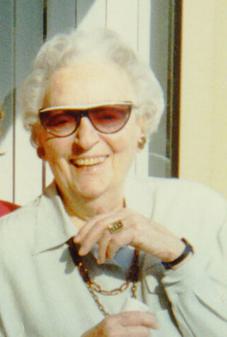
Katalin (Kitty) Marianne Kenedi
Katalin (Kitty) Marianne Kenedi (1909–2004) was born in Budapest, Hungary. In 1944, during the German occupation of Hungary, Katalin worked as a medic in the international ghetto in Budapest and as such was instrumental in saving many lives. Her husband, Andor (Bandi), worked with diplomat Raoul Wallenberg as the head of the Schützling-Protokoll Department dedicated to saving Jews from deportation. Katalin lost her brother Laci, as well as countless other relatives during the Holocaust. In 1945, Katalin opened a specialized clothing boutique but was forced to close it in 1949 during the Hungarian Communist regime. Fluent in Hungarian, English, French and German, she next worked as a translator with a state-controlled import/export company. Katalin and Andor immigrated to Canada in 1970 with their daughter, Judith. After Andor’s death in 1973, Katalin returned to work in the fashion industry, continuing to work part-time until she was eighty years old while also actively volunteering in her community. She lived independently until her early nineties and celebrated her 95th birthday in October 2004.
Katalin (Kitty) Marianne Kenedi is the author of Frightful Days from Confronting Devastation: Memoirs of Holocaust Survivors from Hungary.
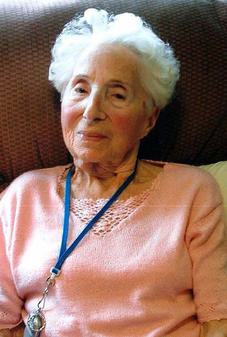
Jack Klajman
Jankiel (Jack) Klajman (1931–2019) was born in Warsaw, Poland, where he spent the entirety of World War II, witnessing the Warsaw Ghetto Uprising from within the ghetto and the Warsaw Uprising a year later while in hiding. Jack was the only survivor of his family. After the war, he eventually made his way to England in the fall of 1945 as part of a program supporting Jewish war orphans and then to Canada in 1948 through the War Orphans Project. Jack settled in London, Ontario, where he owned a fur store for many decades. In 2013, he was featured in the documentary Little Heroes from the Warsaw Ghetto, which chronicles his and other Jewish boys’ survival in Warsaw after the destruction of the ghetto. With his wife, Sonia, he had four children and three grandchildren.
Jack Klajman is the author of The Smallest Hope .
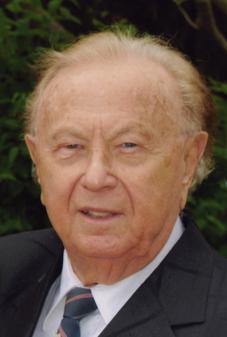
Eddie Klein
Eddie Klein (1927–2020) was born in Sieradz, Poland. He immigrated to British Mandate Palestine in 1945, where he worked for the Palmach and the Israeli Air Force. Eddie married his wife, Miriam, in Tel Aviv in 1955, and they immigrated to Canada in 1956. Eddie enjoyed windsurfing and lived in Montreal for more than sixty years.
Eddie Klein is the author of Inside the Walls .
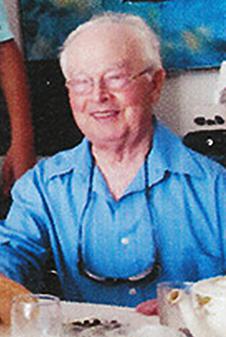
Svetlana Kogan-Rabinovich
Svetlana Kogan-Rabinovich was born in Tulchin, Ukraine, in 1927. In 1941, she was forced into the Tulchin ghetto, from where she was sent to the Pechora camp and a camp in the village of Rakhny. She escaped and lived in hiding until the area was liberated by the Soviets in the spring of 1944. After the war, she lived in Kharkov, where she met and married Hershel Kogan in 1947. They had a son, Ilya, in 1948, followed by their daughter, Ludmila, four years later. Svetlana and her family moved to Moscow in 1975, where she was active in Holocaust education and commemoration, establishing Holocaust memorials in Tulchin and Gaisin. She also fought to have Jews specifically recognized as victims, as Soviet memorial terminology was “Soviet peoples.” In 2000, her efforts were successful and the plaques on the memorials were changed. In 1985, her husband, Hershel, passed away. In 1989, Svetlana moved to Toronto with her daughter and family, where she founded and led an organization for Holocaust survivors from the Soviet Union called the Club for Former Prisoners of Concentration Camps and War Veterans. Svetlana lives in Toronto.
Svetlana Kogan-Rabinovich is the author of In the Inferno: the Dead Loop Concentration Camp from Before All Memory Is Lost: Women's Voices from the Holocaust and Le Circuit de la mort : le camp au coeur de l’enfer from Un combat singulier : Femmes dans la tourmente de l’Holocauste.
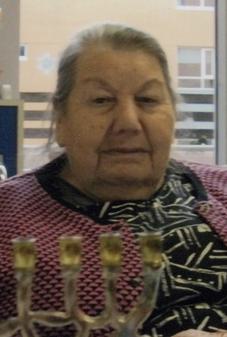
Benedikt (Benő) Korda
Benedikt (Benő) Korda (né Kornreich) (1914–2010) was born in Munkács, Hungary (now Mukachevo, Ukraine). His diverse education led to his multilingualism — he spoke Hungarian, Yiddish, German, Ruthenian, Czech, Russian, French, Latin and English. Benő was studying in Prague when the Germans invaded Czechoslovakia on March 15, 1939. He remained, got married and taught Jewish children banned from schools. In 1942, he was able to leave for Hungary, considered safer at the time, but he was soon drafted into the Hungarian forced labour service. In 1944, he was liberated by the Soviets and he stayed on with the Soviet army, working as an interpreter to interrogate prisoners of war. In 1945, Benő returned to Munkács and learned that much of his family had perished in Auschwitz. Benő eventually reunited with his wife, Bozenka, and they returned to Prague; their daughter, Zita, was born in 1953. Benő worked as a statistician in the mining industry and then chaired the Department of Statistics at the University of Economics. In 1968, when the Soviets invaded Czechoslovakia, he and his family fled to Edmonton, where he became a professor at the University of Alberta.
Benedikt (Benő) Korda is the author of My Surprising Escapes from Confronting Devastation: Memoirs of Holocaust Survivors from Hungary.
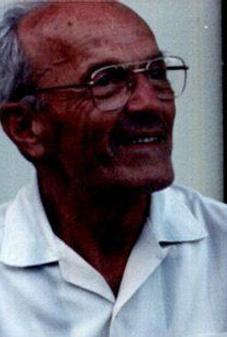
David Korn
David Korn was born in Brno, Czechoslovakia (now Czech Republic), in 1937. In 1949, he immigrated to Israel, where he earned a degree in engineering. David came to Canada in 1965 and worked on building restorations in Montreal, Ottawa and Halifax. David lives in Halifax, where he speaks often about his wartime experiences.
David Korn is the author of Saved by Luck and Devotion from At Great Risk: Memoirs of Rescue during the Holocaust and Sauvés par la chance et le dévouement from Un si grand péril : mémoires de sauvetage durant l’Holocauste.
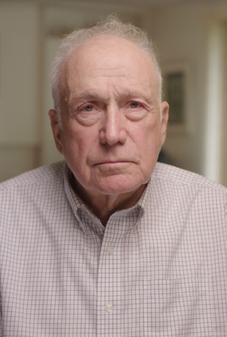
Renate Krakauer
Renate Krakauer was born in 1941 in Stanisławów, Poland (now Ivano-Frankivsk, Ukraine). She and her family came to Canada in 1948. Renate made her home in Toronto, where she earned a masters and a doctorate and worked in various professions. She has written and published one book, as well as numerous short stories and essays. Renate Krakauer lives in Toronto.
Renate Krakauer ist the author of But I Had a Happy Childhood and Le bonheur de l’innocence.
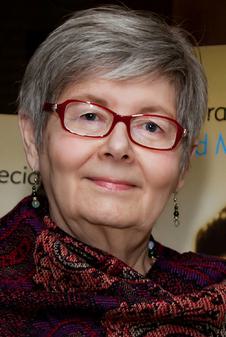
Bianka Kraszewski
Bianka Kraszewski was born in Warsaw, Poland, in 1929. After escaping from the Warsaw ghetto, she survived the war in hiding. An orphan after the war, she lived in Poland and then immigrated to Scotland in 1946 with her cousin Gabrys to join their uncle Leon. In Glasgow, Bianka went to high school and university, where she earned her master’s degree in French and German. She met her future husband, Ludek, and they immigrated to Canada, where Bianka’s uncle Leon had moved, in July 1951. Bianka and Ludek married on September 4, 1951. They lived in Oakville, Hamilton and Toronto before resettling in Oakville, where they raised their two daughters, Renata and Tamara. Bianka took night classes in Spanish at the University of Toronto, earned her master’s in Spanish and completed the courses for her PhD. She taught Spanish to adults in Oakville and also worked as a court interpreter in Polish and Spanish across Ontario as well as for the Immigration and Refugee Board in Toronto. Bianka belonged to Toronto’s child survivors’ group for hidden children and spoke at schools to educate students about the Holocaust for many years. Bianka Kraszewski lives in Oakville.
Bianka Kraszewski is the author of In Memoriam from Before All Memory Is Lost: Women's Voices from the Holocaust and In memoriam from Un combat singulier : Femmes dans la tourmente de l’Holocauste.
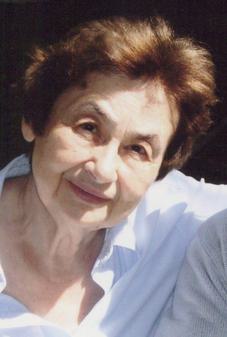
Barbara Kuper
Barbara Kuper (1920–2016) was born in Częstochowa, Poland. She survived the war by passing as a gentile. Out of five siblings, she and one brother survived the war. The rest of her family was murdered in Treblinka. After the war, Barbara returned to her studies, earning an MSc in physical chemistry (with distinction) from the Jagiellonian University in Krakow. In 1947 she married Anthony (Abram) Kuper and along with his young daughter, Eva, they immigrated to Canada in 1949. Barbara’s career in industry was complemented by post-graduate courses at McGill University in nuclear-magnetic resonance spectroscopy. In her leisure she pursued her lifelong interest in art and progressed from figure drawing and painting to sculpting in black-and-white marble and bronze. Barbara’s works have found a home in many international and Canadian collections and museums and she had six solo exhibits at the prestigious Dominion Gallery in Montreal. Barbara passed away on September 22, 2016, in her ninety-seventh year.
Barbara Kuper is the author of Life Lines from Before All Memory Is Lost: Women's Voices from the Holocaust and La chaîne de vie from Un combat singulier : Femmes dans la tourmente de l’Holocauste.
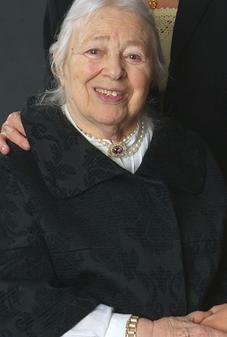
Eva Kuper
Eva Kuper was born in Warsaw, Poland, in 1940. Eva and her father escaped the Warsaw ghetto and she survived in hiding helped by family and strangers, including Sister Klara Jaroszyńska, who Eva reunited with in 2005. In 1949, Eva and her family immigrated to Montreal, where she was educated at Sir George Williams University and Concordia and spent the major part of her work life in education and educational administration. Eva taught and directed programs and workshops for children and adults in a variety of settings including early childhood development centres, elementary schools, Vanier College and Concordia University, and she was the principal of Jewish Peoples’ Schools and Peretz Schools. Eva retired in 2005 and has made Holocaust education an important mission in her life. She sits on the board of the Montreal Holocaust Museum and is an active volunteer at the Jewish General Hospital, Child Psychiatry Department; the Cummings Jewish Centre for Seniors; and Temple Emanu-El Beth Sholom. Eva Kuper lives in Montreal.
Eva Kuper is the author of A Beacon of Light from Before All Memory Is Lost: Women's Voices from the Holocaust and Un phare dans la nuit from Un combat singulier : Femmes dans la tourmente de l’Holocauste.
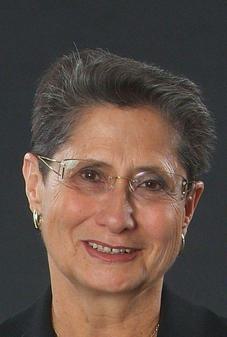
Michael Kutz
Michael Kutz (1930–2020) was born in Nieśwież, Poland (now Belarus). He arrived in Canada as a war orphan in 1948 and lived in Winnipeg before settling in Montreal in the early 1950s, where he joined various charitable organizations dedicated to helping disadvantaged youth, the elderly and war veterans.
Michael Kutz is the author of Si, par miracle and If, By Miracle .
You can learn more about Michael Kutz’s story by visiting Re:Collection
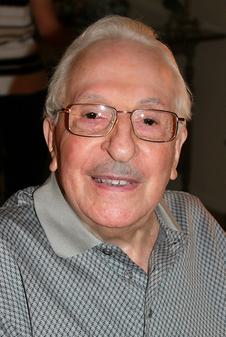
Ferenc Laczó
Ferenc Laczó is assistant professor in history at Maastricht University. He is the author of Hungarian Jews in the Age of Genocide: An Intellectual History, 1929–1948 (2016) and co-editor (with Joachim von Puttkamer) of Catastrophe and Utopia: Jewish Intellectuals in Central and Eastern Europe in the 1930s and 1940s (2017).
Ferenc Laczó is the editor of Confronting Devastation: Memoirs of Holocaust Survivors from Hungary.
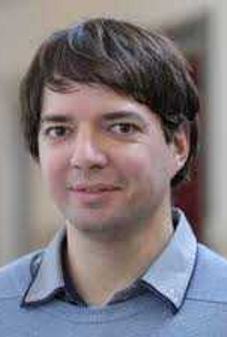
Mark Lane
Mark Lane was born in 1929 in the village of Olenovo in eastern Czechoslovakia (now Olen’ovo, Ukraine). His village and area was ceded to Hungary in 1939, and in 1944, under Nazi occupation, Mark and his family were forced into a nearby ghetto and then deported to Auschwitz-Birkenau, where his mother, two brothers and sister were murdered on arrival. Between January and March 1945, Mark endured death marches to the Mauthausen and Gunskirchen concentration camps, where he was finally liberated by the American army on May 5. After the war, Mark reunited with his father and they restarted their lives in the Bad Windsheim displaced persons camp in Bavaria, Germany. After briefly living in Israel in 1948 and then in France, Mark immigrated to Canada in 1951 to be closer to his father. In Toronto, Mark met and married Ruth and he ran his own business, selling furniture and appliances for thirty-four years. He also became an advocate for Holocaust education, speaking for the Neuberger Holocaust Education Centre and to students at Crestwood School. Mark lives in Toronto and has two children, five grandchildren and one great-grandchild.
Photo credit: Elliot Sylman for the Neuberger Holocaust Education Centre.
Mark Lane is the author of As a Free Man from Confronting Devastation: Memoirs of Holocaust Survivors from Hungary.
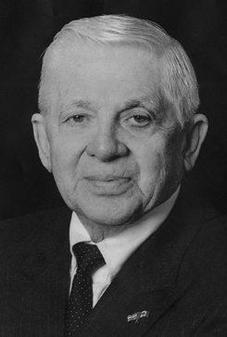
Eva Lang
Eva Lang (1930-2024) was born in Brussels, Belgium. She immigrated to British Mandate Palestine in 1945 and to Canada in 1974. Eva was an early childhood educator and an aesthetician.
Eva Lang is the author of Three Stars in the Sky from At Great Risk: Memoirs of Rescue during the Holocaust and Trois étoiles dans le ciel, from Un si grand péril : mémoires de sauvetage durant l’Holocauste.
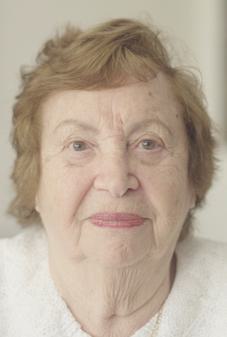
László Láng
László Láng (1925–2015) was born in Abaújszántó, Hungary, to Béla and Olga (née Fried) Láng. He had one sister, Katalin. In 1940, due to increasing antisemitic restrictions in higher education, László became an apprentice with the Magyar Izraelita Kézmű és Földművelési Egyesület (MIKÉFE, the Hungarian Jewish Craft and Agricultural Association) and earned his journeyman’s certificate in metalwork. In 1944, he was drafted to the Hungarian forced labour service, where he survived harsh workloads and conditions. After liberation, László learned that fifteen family members, including his parents, had been murdered in Auschwitz. He reunited with his sister, Katalin. In 1946, László left Hungary for pre-state Israel, where he worked in a machine shop, served in the navy, married and had two children. Tragically, in 1960, both his wife and first daughter died within six months of each other. László married Eva, who had three children, and they had another child together. He and his family immigrated to Canada in 1974, where László continued working in machine operations and design, eventually owning his own business. He also became an artist, using scrap metal to create hundreds of sculptures.
László Láng is the author of With Aching Hearts from Confronting Devastation: Memoirs of Holocaust Survivors from Hungary.
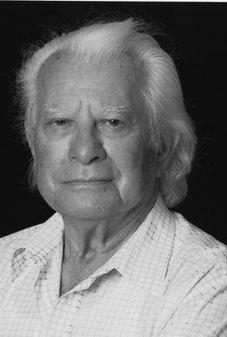
Nate Leipciger
Nate Leipciger was born in Chorzów, Poland, in 1928. He immigrated to Toronto in 1948, where he eventually obtained a university degree in engineering. Nate was a member of the International Council of the Auschwitz-Birkenau Museum for fifteen years and has been an educator on March of the Living for nineteen years. Nate Leipciger lives in Toronto.
Nate Leipciger is the author of Le Poids de la liberté and The Weight of Freedom .
You can learn more about Nate Leipciger’s story by visiting Re:Collection
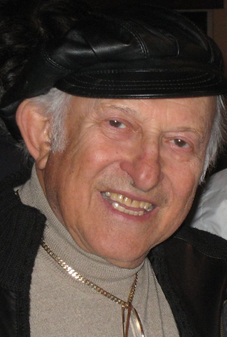
Alex Levin
Alex Levin (1932–2016) was born in Rokitno, Poland (now Ukraine). After the war, he was sent to the USSR and enrolled in cadet school, remaining in the Soviet army until forced out for being Jewish. Alex came to Canada in 1975 and settled in Toronto, where he spoke to many students about his experiences in the Holocaust.
Alex Levin is the author of Étoile jaune, étoile rouge and Under the Yellow & Red Stars .
You can learn more about Alex Levin’s story by visiting Re:Collection
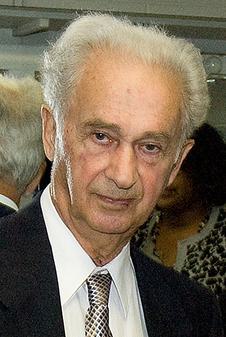
Rachel Lisogurski
Rachel Lisogurski (1911-1998) was born in Grodzisk, Poland, in 1911. After the war, she and her family lived in a displaced persons camp in Italy before immigrating to Montreal in 1948. Rachel first wrote her memoir in 1967 as a way to improve her English. In 1985, she moved to Israel to join her daughter and family there.
Rachel Lisogurski is the author of Daring to Hope .
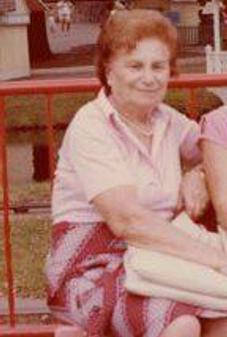
Helen Mahut
Helen Mahut (1920–2010) was born as Walentyna Dudekzak in Kyiv, Ukraine. She passed as a Catholic during the war, joined the Polish resistance in Warsaw and administered refugee camps after the war. Helen immigrated to Canada in 1949, joining her husband, Stefan Mahut. She earned a doctorate in 1955 at McGill University in physiological and comparative psychology. An accomplished researcher specializing in behavioural and cognitive neuroscience, she taught in the psychology department at Northeastern University in Boston for twenty-three years. Helen passed away on March 7, 2010, at age ninety.
Helen Mahut is the author of The Depth of Decency from Before All Memory Is Lost: Women's Voices from the Holocaust and La grandeur humaine from Un combat singulier : Femmes dans la tourmente de l’Holocauste.
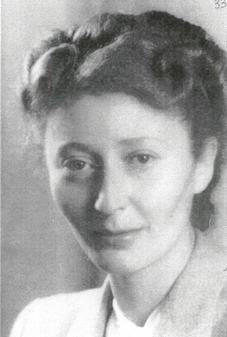
Fred Mann
Fred Mann (1926–2008) was born in Leipzig, Germany. During his travels after the war, he met and married his wife in Salzburg, Austria, and the family immigrated to Toronto in 1952, where he had a long career as an international financier.
Fred Mann is the author of Un terrible revers de fortune and A Drastic Turn of Destiny .
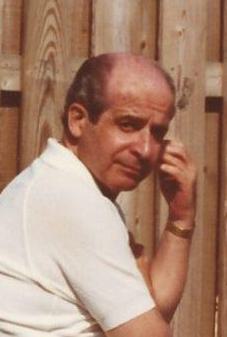
Eva Felsenburg Marx
Eva Marx was born in Brno, Czechoslovakia (now Czech Republic), on October 21, 1937. She immigrated to Montreal in 1949, where she became an elementary school teacher. Eva Marx lives in Montreal.
Eva Marx is the author of One of the Lucky Ones and Une question de chance.
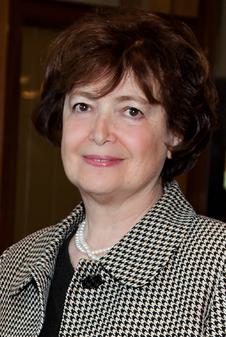
Michael Mason
Michael Mason was born as Miklos Friedman in Beregszász, Czechoslovakia (now Ukraine), in 1928. In 1948, to immigrate to Canada, he took on the identity of Miklos Moskovits, later changing his name to Michael Mason in response to antisemitic hiring practices. In Canada, Michael worked in a variety of businesses before becoming a denturist in 1973. Michael Mason lives in Toronto.
Michael Mason is the author of Au fil d’un nom and A Name Unbroken .
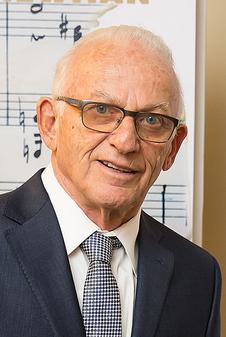
Catherine Matyas
Catherine Matyas (née Grunfeld) (1928–2019) was born in Debrecen, Hungary. In 1942, Catherine’s father, Ignatz, was drafted into the Hungarian forced labour service and disappeared on the Soviet front. In the spring of 1944, Catherine and her mother, Esther, her younger brother, Tibor, and her maternal grandparents, Aron and Gizi, were sent to the Debrecen ghetto. They were deported from the ghetto to Strasshof, Austria, then to Lobau, a suburb of Vienna, and later to a forced labour camp in a school in Vienna. In early 1945, her brother, Tibor, who was disabled, was taken away; they never saw him again. The rest of the family was sent to a holding area on Hackengasse in Vienna, and in early March 1945 they were deported to the Theresienstadt ghetto/concentration camp, where they managed to survive until liberation in May 1945. After the war, Catherine finished school in Debrecen and in 1948 she left for Paris, where one year later she met and married her husband, Herman. Their daughter Yvette was born in 1951, and the family immigrated to Montreal in 1955. There, Catherine and Herman set up a business and had their second daughter, Hedy, in 1959. Catherine’s wartime diary entries were translated from Hungarian into English in 2016.
Catherine Matyas is the author of To Live in Freedom: Excerpts from Catherine Matyas’s Diary from Before All Memory Is Lost: Women's Voices from the Holocaust and Vivre en toute liberté : extraits du journal de Catherine Matyas from Un combat singulier : Femmes dans la tourmente de l’Holocauste.
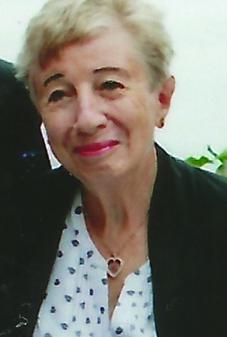
Eva Meisels
Eva Meisels was born in Budapest, Hungary, on July 3, 1939. In November 1944, she and her mother ended up in the Budapest ghetto. They acquired false papers from Raoul Wallenberg and were liberated by the Soviet army in January 1945. After the Hungarian Revolution, the family immigrated to Canada.
Eva Meisels is the author of Soudain, les ténèbres and Suddenly the Shadow Fell .
You can learn more about Eva Meisels’s story by visiting Re:Collection
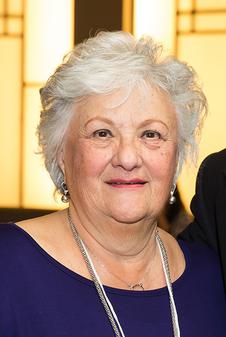
Leslie Meisels
Leslie Meisels (1927–2018) was born in Nádudvar, Hungary. His whole immediate family survived the Holocaust. He immigrated to the US in 1958, following the Hungarian Revolution, and to Canada in 1967. He married Eva Silber in 1961 and they lived in Toronto.
Leslie Meisels is the author of Soudain, les ténèbres and Suddenly the Shadow Fell .
You can learn more about Leslie Meisels’s story by visiting Re:Collection
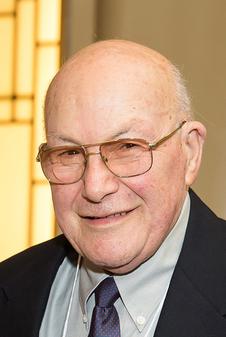
Leslie Mezei
Leslie Mezei was born in 1931, in Gödöllő, Hungary. In 1948 Leslie arrived in Canada, where he eventually became a professor at the University of Toronto. An early pioneer in the field of computer art, Leslie also developed two new graphic programming languages. Leslie lives in Toronto, where he is very involved in an interfaith and interspiritual movement.
Leslie Mezei is the author of A Tapestry of Survival .
You can learn more about Leslie Mezei’s story by visiting Re:Collection
Miriam Mózes
Miriam Mózes (1931-2023) was born in the town of Hódmezővásárhely, Hungary to Tibor and Manci (née Brown) Rottman. During the German occupation of Hungary, Miriam, her mother and her brother, András (Andrew), were deported to Austria, where they worked in a labour camp. In March 1945, they were sent on a death march to Theresienstadt, from where they were liberated. Miriam’s father, sent to a forced labour battalion, never returned. Miriam left Hungary for Israel in January 1950; that spring, she married Laci (Ze’ev; Leslie), and in the fall she was accepted into the Technion University for chemical engineering. In 1966, Miriam and her family moved to London, England, where she had been awarded a scholarship to earn her PhD in physical chemistry at the Queen Mary University (then College) of London. In 1970, Miriam and her family moved to Toronto, where she became head of the Pollution Abatement Research Group at Ontario Hydro, the first female engineer in the research division. An avid environmentalist, Miriam had a successful twenty-five year career at Hydro.
Miriam Mózes is the author of Hoping in Isolation from Confronting Devastation: Memoirs of Holocaust Survivors from Hungary.
Muguette Myers
Muguette Szpajzer-Myers was born in 1931 in Paris, France. In 1947, Muguette, her older brother and their mother immigrated to Montreal, where Muguette eventually started a family and worked as a translator. Muguette returned to Champlost, France, in 2005 for a ceremony to honour four members of the community as Righteous Among the Nations for hiding her and her family during the war. Muguette Myers lives in Montreal.
Muguette Myers is the author of Les Lieux du courage and Where Courage Lives .
You can learn more about Muguette Myers’s story by visiting Re:Collection
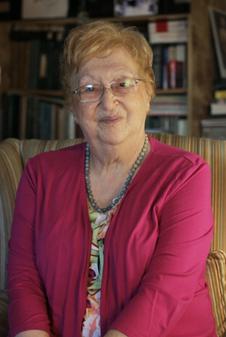
David Newman
David Newman (1919–2002) was born in Chmielnik, Poland. He immigrated to Paris with his wife, Anna, and son, Jack, in 1946. In 1951, the Newman family immigrated to Toronto, where they raised their children, Jack and Gloria. David was a performer in Yiddish theatre productions, taught Yiddish to countless students and co-founded the Kol Yisroel congregation at the Borochov Centre.
David Newman is the author of Hope's Reprise .
You can learn more about David Newman’s story by visiting Re:Collection
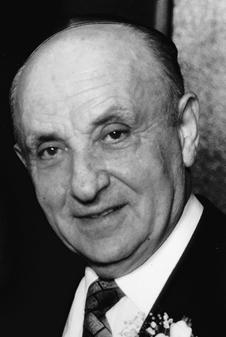
Arthur Ney
Arthur Ney (1930–2016) was born in Warsaw, Poland. He came to Canada in 1948 and settled in Montreal, where he married Susan and raised a son. Arthur persevered in finding employment, eventually becoming self-employed selling furniture. After Susan’s death, he married Kathleen and had a second son. Arthur was dedicated to Holocaust education and frequently spoke to students about his wartime experiences.
Arthur Ney is the author of L'Heure W and W Hour .
You can learn more about Arthur Ney’s story by visiting Re:Collection
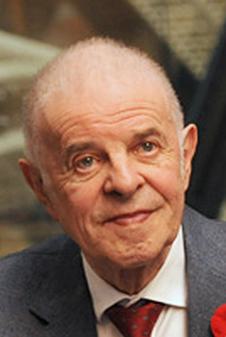
Felix Opatowski
Felix Opatowski (1924–2017) was born in Lodz, Poland. He was liberated in Austria by the US army on May 9, 1945, and worked at a US army base where he married his wife, Regina, in 1947. Felix and Regina arrived in Toronto in 1949; they were married for sixty-nine years.
Felix Opatowski is the author of L’Antichambre de l’enfer and Gatehouse to Hell .
You can learn more about Felix Opatowski’s story by visiting Re:Collection

Dyna Perelmuter Reichental
Dyna Perelmuter Reichental (1921–2010) was born in Bodzanów, Poland. During the war, she was forced into the Częstochowa ghetto and a labour camp, from which she escaped. She spent the remainder of the war passing as a gentile. After the war, Dyna lived in Warsaw, where she married Moshe (Marian) Reichental. They immigrated to Canada in 1959, settling in Montreal, where Dyna reunited with her brother Shimshon and her sister Ruza, later travelling to Israel to reunite with her brother Benjamin and her sister Rifka. In Montreal, Dyna raised two children and worked in administration at the Jewish General Hospital. After her retirement, she enrolled in painting classes at Concordia University and took courses on current events at McGill University’s School of Continuing Studies. She wrote her memoir in Polish in 1999 and titled it Mewa (seagull), after her nickname as a child — mewa was a term of endearment for someone lively and gregarious.
Dyna Perelmuter Reichental is the author of Mewa (Seagull) from Before All Memory Is Lost: Women's Voices from the Holocaust and Mewa (La Mouette) from Un combat singulier : Femmes dans la tourmente de l’Holocauste.
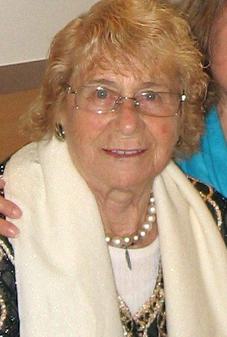
Irena Peritz
Irena Peritz was born in Borysław, Poland (now Boryslav, Ukraine) in 1928. She survived the war in hiding after escaping the ghetto and labour camp in her hometown. While in hiding, Irena wrote a diary in Polish between March and August 1944, when she and her immediate family were liberated. Irena and her family left Poland in 1949 to rebuild their lives in Montreal, where Irena found work as a filing clerk at a pharmaceutical firm, which helped her to learn English. She met her husband, Simon, in a choir and gave birth to their first child, Nina, in 1954. A son, Paul, followed in 1957 and a second daughter, Ingrid, in 1959. When Irena’s children had grown up, she joined a jogging group at the local YWHA, hiked mountains across North America and spent much of her time in nature. Irena passed away in 2026.
Irena Peritz is the author of Each Day Could Be Our Last: Irena’s Wartime Diary from Before All Memory Is Lost: Women's Voices from the Holocaust and Chaque jour pouvait être le dernier : le journal d’Irena from Un combat singulier : Femmes dans la tourmente de l’Holocauste.
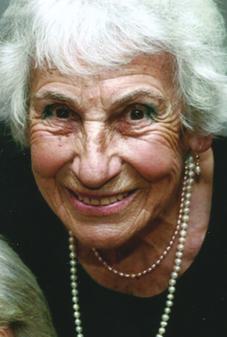
Malka Pischanitskaya
Malka Pischanitskaya was born in Romanov (now Romaniv), Ukraine, in 1931. She returned to her town in 1944, after liberation, and lived there until graduating from high school in 1950. Malka continued her education in Zhitomir (now Zhytomyr), earning her high school teaching diploma from Ivan Franko State University in 1954. She married and had two children, living with her family in Tashkent and Uzhgorod (now Uzhhorod), before immigrating to Vancouver, Canada, in 1975. Malka Pischanitskaya lives in Vancouver.
Malka Pischanitskaya is the author of A Mother to My Mother .
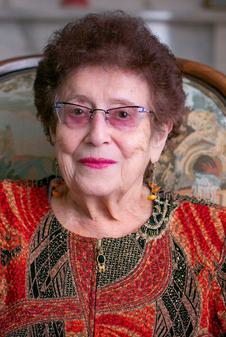
Gitlia Popovsky
Gitlia Popovsky (1922–2016) was born in Skvyra, Ukraine. In 1926, she and her parents moved to Kyiv. In 1941, during the Nazi occupation, Gitlia escaped right before Babi Yar, the massacre of Jews in Kyiv, and was evacuated to Uzbekistan; she lived there with her parents, under terrible conditions, until she returned to Kyiv in the summer of 1944. In 1945, Gitlia married her husband, Abraham, and they had two children, Roman and Sofia. Abraham passed away in 1968. In 1977, Gitlia immigrated to Canada, settling in Montreal, where four generations of her family were reunited — her mother, Paisa Budnitsky, herself, her daughter, Sofia Zatulovsky, and her granddaughter, Albinna Abitan. Later on, her family grew with the additions of her great-grandchildren, Joshua, Daniel, Jamie (Shmuel), Maya (Flora) and Leah.
Gitlia Popovsky is the author of I Have Survived It All from Before All Memory Is Lost: Women's Voices from the Holocaust and Revenue de loin from Un combat singulier : Femmes dans la tourmente de l’Holocauste.
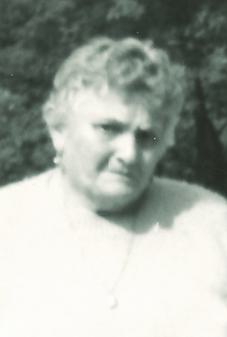
Marguerite Élias Quddus
Marguerite Élias Quddus was born in Paris, France, in 1936. In 1967, Marguerite immigrated to Canada, first to Vancouver and then to Quebec, where she became a volunteer teacher’s aide. Marguerite lives near Montreal, where she is extremely active in giving talks about her wartime experiences.
Marguerite Élias Quddus is the author of Cachée and In Hiding .
You can learn more about Marguerite Élias Quddus’s story by visiting Re:Collection
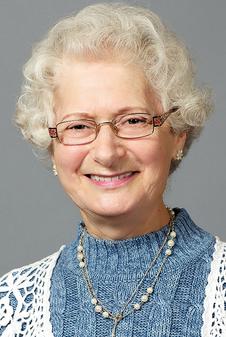
Maya Rakitova
Maya Rakitova was born in Smolensk, Russia, on June 4, 1931. In 1954, she graduated from the Faculty of Radio and Television at the Bonch-Bruevich Leningrad Electro-Technical Institute of Communications. Maya, her husband and their youngest daughter immigrated to Montreal in 1981. There, Maya worked at the Canadian Broadcasting Corporation (CBC) for seventeen years. Maya Rakitova lives in Montreal.
Maya Rakitova is the author of Behind the Red Curtain .
You can learn more about Maya Rakitova’s story by visiting Re:Collection
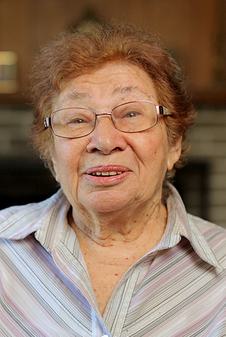
Suzanne (Katz) Reich
Suzanne (Katz) Reich (1930–1994) was born in Kisvárda, Hungary. In May 1944, she was deported from the Kisvárda ghetto to Auschwitz-Birkenau. Four months later, she was sent on a transport to a forced labour camp, where she worked under brutal conditions before being sent on to a second labour camp and then the Theresienstadt ghetto/concentration camp, from where she was liberated. Suzanne was orphaned after the war but reunited with her sister, Mary. In 1949, Suzanne immigrated to Canada and she married Peter Reich on June 18, 1950, in Montreal. They went on to parent two daughters, Edwina and Sandra. Suzanne was active in the civil rights movement and in fighting against discrimination of any kind, and she was passionate about art, culture and cooking. She wrote her memoir, Sometimes I Can Dream Again, in 1982 as a testimony to the power of resilience.
Suzanne (Katz) Reich is the author of Sometimes I Can Dream Again from Before All Memory Is Lost: Women's Voices from the Holocaust and Il m’arrive encore de rêver from Un combat singulier : Femmes dans la tourmente de l’Holocauste.
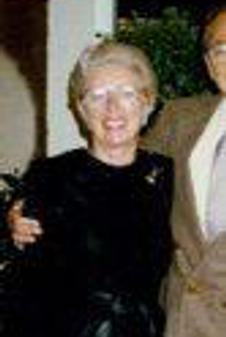
Henia Reinhartz
Born in Lodz, Poland, Henia Reinhartz (1926–2021) endured the Lodz ghetto and survived Auschwitz and Bergen-Belsen. After the war, she moved to Paris, where she graduated as a Yiddish and Hebrew teacher and met her husband. Henia immigrated to Canada in 1951.
Henia Reinhartz is the author of Fragments de ma vie and Bits and Pieces .
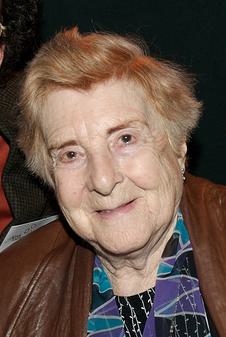
Andy Réti
Andy Réti was born in Budapest, Hungary, in 1942. He was liberated from the Budapest ghetto in January 1945. Andy has been a volunteer at Toronto’s Holocaust Education Centre since 1998, and joined his mother on many of her events as a survivor speaker. Since his mother’s passing, Andy has continued in her footsteps, telling their stories to numerous audiences.
Photo by Matthew Shoychet
Andy Réti is the author of Stronger Together .
You can learn more about Andy Réti’s story by visiting Re:Collection

Betty Rich
Betty Rich (1923-2017) was born Basia Kohn in Zduńska Wola, Poland. After the war, Betty lived in Lodz, where she married her husband, David Recht. They fled the Polish Communist regime in January 1949 and arrived in Toronto later that year. Betty worked in mortgages and investments until her retirement.
Betty Rich is the author of Seule au monde and Little Girl Lost .
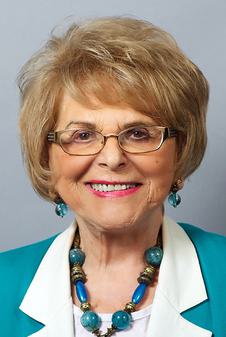
Paul-Henri Rips
Paul-Henri Rips (1929–2023) was born in Antwerp, Belgium. He left Antwerp in 1950 and moved to the Belgian Congo and then to South Africa, where he married his wife, Lily. In 1997, the couple immigrated to Toronto to join their children and grandchildren.
Paul-Henri Rips is the author of Matricule E/96 and E/96: Fate Undecided .
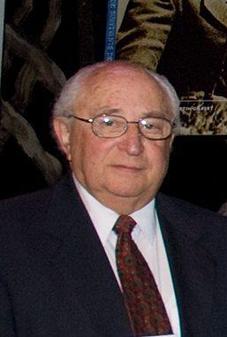
Ilonka (Helen) Rodak-Izso
Ilonka (Helen) Rodak-Izso (née Friedmann) (1915–1998) was born in Abaujkér and raised in Košice, Czechoslovakia (now Slovakia), which became Kassa, Hungary, during World War II. She was the daughter of Marcus and Terez and sister to Olly, Shani and Laci. In 1944, under the Nazi occupation of Hungary, she and her family were deported to Auschwitz-Birkenau. Together with her sister Olly, Helen survived stops in twelve concentration camps, a death march and the journey back to Košice after liberation. After immigrating to Toronto, Helen became fluent in English and worked as a library assistant at the University of Toronto’s Robarts Library for twenty years. She loved baking, music and spending time with family. Ilonka passed away in 1998, leaving behind a devoted family of two sons and daughters-in-law, five grandchildren and seven great-grandchildren.
Ilonka (Helen) Rodak-Izso is the author of Amid the Burning Bushes from Confronting Devastation: Memoirs of Holocaust Survivors from Hungary.
Moishe Rosenschein
Moishe Rosenschein (1922–2011) was born to Sara Weisz Rosenschein and Nosson Rosenschein in Szolyva, Czechoslovakia (now Svaliava, Ukraine), and grew up in a large, warm, poor religious family. He had two brothers and two sisters. In the fall of 1943, Moishe was sent to a forced labour camp, enduring brutal conditions in both Poland and Hungary. As the Soviet army approached, Moishe escaped the forced labour unit, finding shelter until the area was liberated. After the war, Moishe found out that he had lost both his parents, but he was reunited with his two brothers. Moishe journeyed to Palestine and after several months of detainment in Cyprus, he finally arrived in pre-state Israel and fought in the War of Independence. Moishe left Israel in 1951 and went briefly to France before immigrating to Montreal. He married Vera Neizer in 1958 and had two children, Nathan (Fanny) and Julie (Aharon), nine grandchildren and nineteen great-grandchildren. Moishe spoke six languages and worked as a teacher and bookkeeper. He enjoyed cantorial music, watching hockey games, playing cards, attending synagogue and spending time with his family.
Moishe Rosenschein is the author of Two Sorts of Homecoming from Confronting Devastation: Memoirs of Holocaust Survivors from Hungary.
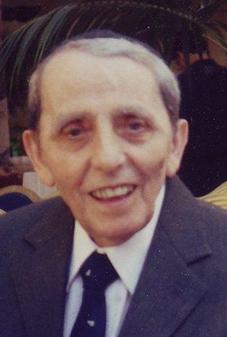
Steve Rotschild
Steve Rotschild (1933–2020) was born in Vilna, Lithuania. After the war, his mother remarried, and their new family immigrated to Israel. In 1956, Steve married Lillian in Montreal, where their two daughters were born. After moving to Phoenix, Arizona, for a few years, they made Toronto their final home. Steve wrote several short stories and painted wilderness scenes throughout his lifetime. He also enjoyed fishing in Algonquin Park, using lures that he crafted himself.
Steve Rotschild is the author of Sur les traces du passé and Traces of What Was .
You can learn more about Steve Rotschild’s story by visiting Re:Collection
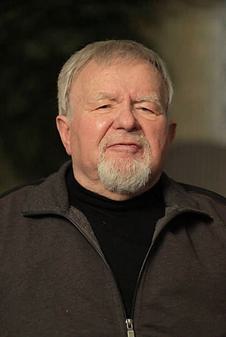
Judith Rubinstein
Judith Rubinstein (1920–2013) was born in Mezőcsát, Hungary. After the war, she spent more than two years in displaced persons camps in Italy. Judith immigrated to Canada in 1948 with her husband, Béla, and their new baby, Robert Eli. She lived a full life in Toronto, as mother of Robert and her daughter, Rochelle, grandmother of seven and great-grandmother of eleven, as well as being a writer of short stories and memoir, a voracious reader and a popular speaker at the Neuberger Holocaust Centre.
Judith Rubinstein is the author of Dignity Endures .
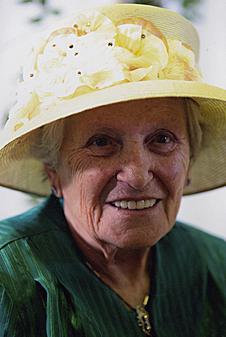
Martha Salcudean
Dr. Martha Salcudean (1934–2019) was born in Cluj, Romania, and immigrated to Canada in 1976. She was a professor at the University of Ottawa before becoming head of mechanical engineering at the University of British Columbia. She received three honorary doctorates and a number of prestigious awards and honours for her extensive contributions to science and engineering.
Martha Salcudean is the author of In Search of Light .
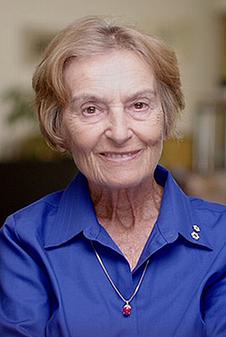
Kitty Salsberg
Kitty (Kati) Salsberg was born in Budapest, Hungary, in 1932. She immigrated to Canada in 1948, where she enjoyed a long and fulfilling career as a teacher. Kitty lives in Toronto.
Kitty Salsberg is the author of Unies dans l’épreuve and Never Far Apart .
You can learn more about Kitty Salsberg’s story by visiting Re:Collection

Koine Schachter Rogel
Koine Schachter Rogel (1911–2002) was born in Ciudin, Bukovina (now Chudei, Ukraine). She was the youngest of eight children; two of her brothers, Abraham and Itzik, had immigrated to Detroit before the war; her brother Mattias lived in Italy; and two other brothers, Gedalia and Moishe, as well as a sister, Fanny, lived in Montreal. Koine grew up with her father, Chaim, her mother, Miriam, and her sister Fraydeh. Her mother passed away in 1930 and her father remarried. During the war, Koine survived the harsh conditions in Transnistria together with her family. After the war, Koine met and married Josef Rogel and they immigrated along with Koine’s family to Montreal in 1949. Unfortunately, Koine’s father, Chaim, did not survive the trip. Koine and Josef eventually earned a good living by selling lunches in an industrial area of clothing factories. Josef passed away in 1989, and although Koine was widowed for many years and had no children of her own, she had long-standing relationships with her nieces and nephews. She had begun writing her memoir in Yiddish in 1941 as a letter to her family, and she returned to this writing in 1989, partially completing the work. Koine passed away in Montreal on July 6, 2002.
Koine Schachter Rogel is the author of A Letter from the Ukraine from Before All Memory Is Lost: Women's Voices from the Holocaust and Lettre d’Ukraine from Un combat singulier : Femmes dans la tourmente de l’Holocauste.
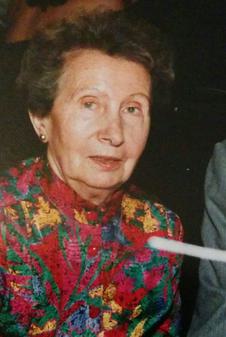
Rebekah (Relli) Schmerler-Katz
Rebekah (Relli) Schmerler-Katz (1923–2005) was born in Rachov, Czechoslovakia (now Rakhiv, Ukraine). Her town was ceded to Hungary in 1939 and renamed Rahó. In April 1944, she and her family were forced into a ghetto and soon deported to Auschwitz-Birkenau. In July 1944, she was sent with her mother and sister to a subcamp of the Natzweiler-Struthof concentration camp and later to a subcamp of Dachau. They were liberated from a transport train at the end of April 1945. In 1948, Relli, her mother and her sister immigrated to Duparquet, Quebec, where her uncle lived. Relli then sponsored her fiancé, Sam Katz, whom she had met in Czechoslovakia soon after the war. They married in 1949 and had one daughter, Shirley. They were devoted grandparents to Shirley’s three children, Robert, Caroline and Stephanie, who they sadly lost at age eight to a chronic illness. Encouraged by her son-in-law, Relli wrote her memoirs in 1996.
Rebekah (Relli) Schmerler-Katz is the author of If the World Had Only Acted Sooner from Before All Memory Is Lost: Women's Voices from the Holocaust and Si seulement le monde avait réagi plus tôt from Un combat singulier : Femmes dans la tourmente de l’Holocauste.
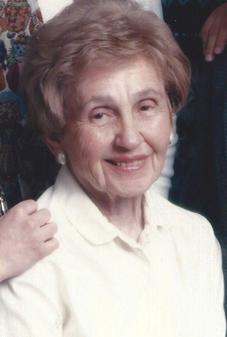
Morris Schnitzer
Morris Schnitzer (1922-2020) was born in Bochum, Germany. In 1947, he immigrated to Montreal, where he earned both a BSc and MSc at McGill University, going on to earn his PhD in 1955. In Ottawa, Morris worked at the Canadian government’s Department of Agriculture as a principal researcher in the chemistry of soil organic matter. He won the prestigious Wolf Prize in Agriculture in 1995 and wrote three books and more than four hundred scientific papers over the course of his distinguished career.
Morris Schnitzer is the author of Sur la corde raide and Escape from the Edge .
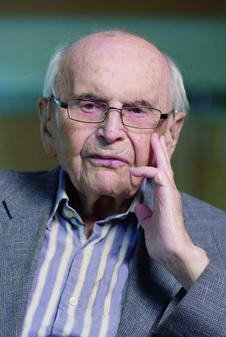
Veronika (Vera) Schwartz
Veronika (Vera) Schwartz (1927–2017) was born in Kisvárda, Hungary, where she lived with her parents, Mór and Eszter, two sisters, Klára and Éva, brother, Zoltán (Zoli), and extended family. In April 1944, she and her family were forced into a ghetto and one month later they were transported to the Auschwitz-Birkenau death camp. Separated from her parents and sisters, Vera was sent to the main camp of Auschwitz, where she met her cousin Magda Klein. They survived the Auschwitz and Stutthof concentration camps, forced labour camps and a death march in the winter of 1945. After liberation, Vera returned to Hungary, where she reunited with her brother, Zoli. While still in Hungary, she met Miklós Mandel, to whom she was married for over sixty-five years, until his death in 2012. Vera and Miklós left Hungary with Zoli in 1946 and lived in displaced persons camps until immigrating to the US and then to Canada in 1947. She and Miklós settled in Montreal under the assumed names of Miriam and John Stone and built a happy family, with five sons and ten grandchildren. Vera passed away on September 12, 2017, after a long battle with Alzheimer’s disease.
Veronika (Vera) Schwartz is the author of Beliefs under Shock from Confronting Devastation: Memoirs of Holocaust Survivors from Hungary.
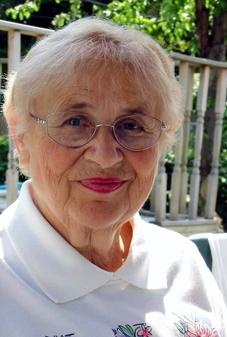
Joseph Schwarzberg
Joseph Schwarzberg (1926–2022) was born in Leipzig, Germany. In 1945, Joseph and his family were part of the earliest legal Jewish immigrants to pre-state Israel. Joseph immigrated to Toronto in 1968, where he established his own business, Adina J. Fashions, in the garment industry.
Joseph Schwarzberg is the author of Sur les sentiers de la guerre and Dangerous Measures .
You can learn more about Joseph Schwarzberg’s story by visiting Re:Collection
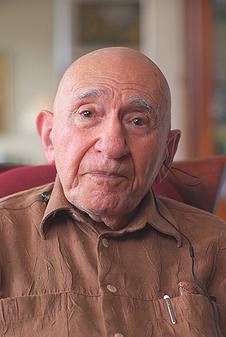
Magda Sebestian
Magda Sebestian was born in Sečovce, Slovakia, in 1928. After surviving the war in hiding with her immediate family, she continued her schooling in Košice. She graduated in 1948 and enrolled in the Faculty of Medicine of the University in Brno, completing her studies in 1953. Magda met her husband, Ady, in 1945 and they married in 1949. In 1954, their son, Ivan, was born. Tania, their daughter, was born in 1962. Magda worked in pediatric cardiology until 1968, at which point she and her family fled to Vienna after the Soviet army invaded Czechoslovakia. In October 1968, they immigrated to Toronto. There, Magda worked to obtain her medical credentials, passing her licencing examination in 1971. She worked at Women’s College Hospital, where she became acting chief of the Department of Neonatology for two years, and she opened a private practice in 1975. Magda retired in 1999 and enjoys spending time with her family, especially her two grandchildren. Magda Sebestian lives in Toronto.
Magda Sebestian is the author of Hidden by Hope from Before All Memory Is Lost: Women's Voices from the Holocaust and L’espoir, mon refuge from Un combat singulier : Femmes dans la tourmente de l’Holocauste.
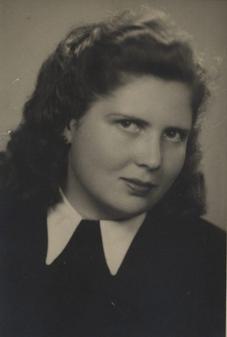
Zuzana Sermer
Zuzana Sermer (1924–2021) was born in Humenné, Czechoslovakia (now Slovakia), in 1924. After the war, she married Arthur Sermer, and they raised a family in Bratislava, Czechoslovakia (now Slovakia). In 1968, during the Soviet occupation of the country, Zuzana and her family fled to Canada and settled in Toronto, where Zuzana became a bookkeeper and enjoyed painting landscapes and writing about living under communism.
Zuzana Sermer is the author of Trousse de survie and Survival Kit .
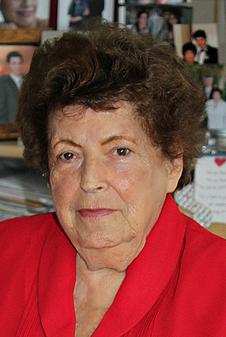
Eva Shainblum
Eva Shainblum was born in 1927 in Nagyvárad, Hungary (now Romania). She immigrated to Canada in 1948, settling in Montreal, where she worked as a bookkeeper, married and raised a family. Eva Shainblum lives in Montreal.
Eva Shainblum is the author of The Last Time.
Adam Shtibel
Adam Shtibel was born in 1928 in Komarów, Poland. He met Rachel Shtibel after the war and they married in 1956, moving to Israel one year later. In Israel, Adam worked in the aircraft industry. In 1968, the family moved to Canada, settling in Toronto, where they still live.
Adam Shtibel is the author of A Child's Testimony and Témoignage d’un enfant.
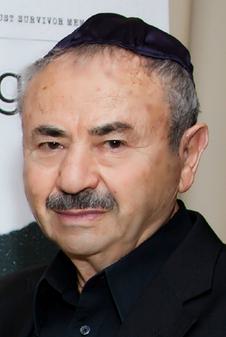
Rachel Shtibel
Rachel (née Milbauer) Shtibel was born in 1935 in Eastern Galicia. She married Adam Shtibel in 1956, moving to Israel one year later. In Israel, Rachel obtained an MA in microbiology. In 1968, the family moved to Canada, settling in Toronto, where they still live.
Rachel Shtibel is the author of The Violin and Le Violon.
You can learn more about Rachel Shtibel’s story by visiting Re:Collection
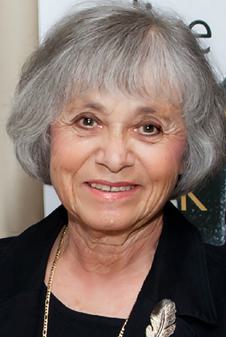
Susan Simon
Susan Simon was born in Budapest, Hungary, in 1935. She grew up in a close-knit family with her parents, Elizabeth and Paul, and her younger sister, Rozi. Before the German occupation of Hungary, Susan and her family were in the Mátra Mountains to escape the air raids in Budapest. In May 1944, they were sent to the Gyöngyös ghetto but managed to escape to Budapest before the ghetto was closed off. Susan’s father was conscripted for forced labour while Susan, her mother and sister hid in a convent and then sought refuge in a Swedish-protected house. They eventually ended up in the Budapest ghetto, from which they were liberated in early 1945. After the war, Susan enrolled in engineering at the Technical University of Budapest. She met her future husband, Tim, in 1955, and after fleeing the 1956 Hungarian Revolution, they reunited in Vienna, Austria, before immigrating to Montreal, where they married in 1957. Susan and Tim had two children and three grandchildren. In 2017, Susan published her memoir, The Mystery of the Precious Candlesticks, an exploration of a dramatic childhood, a rebellious youth, family dynamics and the love that held her life together. Susan Simon passed away in 2024.
Susan Simon is the author of The Light in a Dark Cellar from Confronting Devastation: Memoirs of Holocaust Survivors from Hungary.
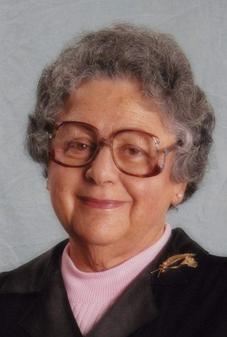
Maxwell Smart
Maxwell Smart was born in Prague, Czechoslovakia (now Czech Republic), in 1930. After surviving the Holocaust on his own, seventeen-year-old Maxwell immigrated to Canada in 1948 through the War Orphans Project. Since his arrival in Canada, Maxwell has lived in Montreal, where he has become a successful painter, opening his own art gallery in 2006.
Maxwell Smart is the author of Chaos to Canvas .
You can learn more about Maxwell Smart’s story by visiting Re:Collection
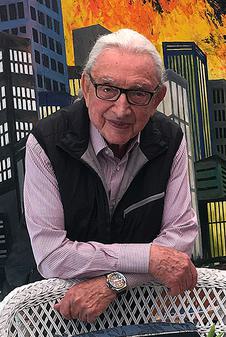
Gerta Solan
Gerta Solan was born in 1929 in Prague, Czechoslovakia (now Czech Republic). After liberation, she returned to Prague, and in 1949 she married Paul Seidner (Solan). They lived under the Communist regime in Prague until the Soviet occupation of Czechoslovakia in 1968, when they fled and immigrated to Toronto with their son. In Toronto, Gerta worked for the Red Cross, tracing and reuniting families after disasters, until her retirement in 1995. Gerta Solan lives in Israel.
Gerta Solan is the author of My Heart Is at Ease .
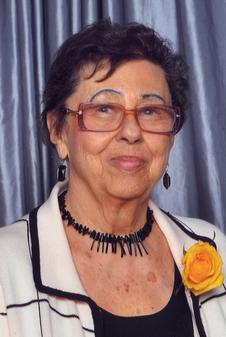
Zsuzsanna Fischer Spiro
Zsuzsanna Fischer (1925–2016) was born in Tornyospálca, Hungary. After the war, she married Holocaust survivor Joseph Spiro. They lived in Budapest with their two sons until the 1956 Hungarian Uprising — an event that Zsuzsanna documented in a diary — and immigrated to Canada in 1957.
Zsuzsanna Fischer Spiro is the author of In Fragile Moments.
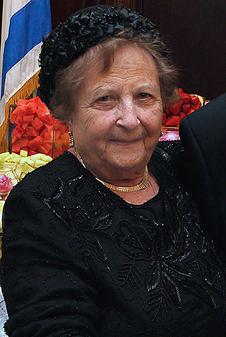
Margrit Rosenberg Stenge
Margrit Rosenberg Stenge (1928–2021) was born in Cologne, Germany. After the war, Margrit moved back to Oslo with her family and got married. She and her husband, Stefan, immigrated to Canada, settling in Montreal, in 1951. Margrit worked in administration for forty years, after which she translated six books from Norwegian to English, including Counterfeiter: How a Norwegian Jew Survived the Holocaust by Moritz Nachtstern (2008).
Margrit Rosenberg Stenge is the author of Le Refuge du silence and Silent Refuge .
You can learn more about Margrit Rosenberg Stenge’s story by visiting Re:Collection
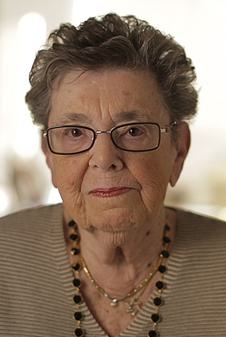
George Stern
George Stern (1931–2017) was born in Újpest, Hungary. After the war, he immigrated to Israel and fought in the War of Independence. In 1960, George and his wife, Judit, left Israel for São Paulo, Brazil; they immigrated to Canada in 1970.
George Stern is the author of Une jeunesse perdue and Vanished Boyhood .
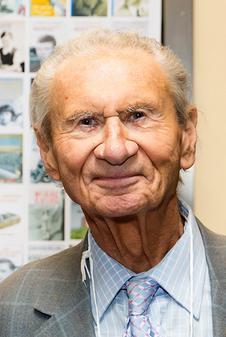
Willie Sterner
Willie Sterner (1919–2011) was born in Wolbrom, Poland, on September 15, 1919. The eldest of seven children, he was the only one to survive the Holocaust. After the war, he lived in displaced persons camps in Austria, where he became chief of the Jewish police. He and his wife, Eva, immigrated to Canada in 1948 and settled in Montreal.
Willie Sterner is the author of Les Ombres du passé and The Shadows Behind Me .

Ann Szedlecki
Ann Szedlecki (1925–2005) was born Chana Frajlich in Lodz, Poland. After the war, she returned to Lodz to find that every member of her family had perished. In 1950, she married and immigrated to Israel and then, in 1953, to Toronto.
Ann Szedlecki is the author of L’Album de ma vie and Album of My Life .
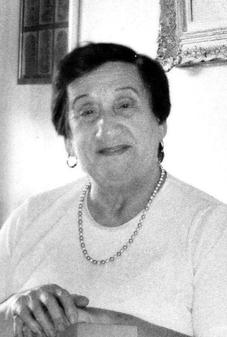
William Tannenzapf
William Tannenzapf (1911–2011) was born in Stanisławów, Poland, and his daughter, Renate, was born in March 1941, during the Nazi occupation. The family immigrated to Canada in 1948, first settling in Montreal. William worked at Westinghouse Electric in Hamilton, where he had a successful career as an electrical engineer, inventing technologies and earning several patents.
William Tannenzapf is the author of Memories from the Abyss and Souvenirs de l’abîme.
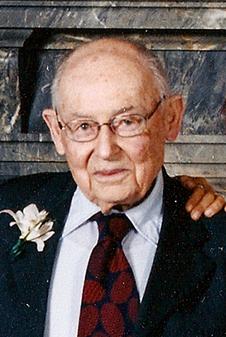
Elsa Thon
Elsa Thon (1923–2019) was born in Pruszków, Poland. After the war, she married Mayer Thon, and they moved to Israel in 1948. In 1955, they immigrated to Argentina, where Elsa worked in a photography studio and raised a family. In 1980, Elsa and Mayer moved to Toronto to be closer to their family. Elsa’s memoir has also been published in Spanish and Polish.
Elsa Thon is the author of Que renaisse demain and If Only It Were Fiction .
You can learn more about Elsa Thon’s story by visiting Re:Collection
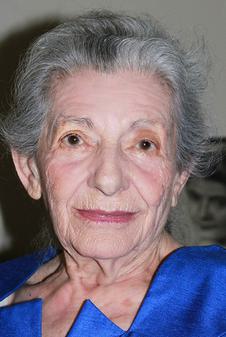
Dolly Tiger-Chinitz
Dolly Tiger-Chinitz (1930-2021) was born in Budapest, Hungary alongside her twin sister, Mari, to a single, working mother, Johanna (Vinyi). In 1938, their mother married a gentile man and they moved to Subotica, Yugoslavia. When Yugoslavia surrendered to the Axis forces and their city was annexed to Hungary, Dolly and Mari’s mother sent them to a convent in Budapest for their safety. After Germany occupied Hungary in 1944, the entire family went into hiding with false papers. Dolly’s mother was arrested, and Dolly and her sister were hidden by a young family friend, eventually enduring the Arrow Cross coup and the Siege of Budapest. After the war, Dolly lived briefly in Yugoslavia, where she met Janos; they married in Paris in 1948 and then immigrated to Venezuela. After she and Janos divorced, she married Joe Tiger and moved to Canada in 1961. In 2008, Dolly immigrated to Israel and married a widowed rabbi, Jacob Chinitz, whom she had met in Montreal. He passed away in 2012. Dolly has four children, eight grandchildren and five great-grandchildren.
Dolly Tiger-Chinitz is the author of Shattered Dreams from Confronting Devastation: Memoirs of Holocaust Survivors from Hungary.
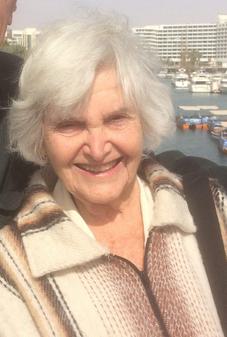
Agnes Tomasov
Agnes Tomasov was born in the small town of Bardejov, Czechoslovakia (now Slovakia), on June 16, 1930. In 1968, following the Soviet invasion of Czechoslovakia, she immigrated to Canada, settling in Toronto with her husband, Joseph, and their two children.
Agnes Tomasov is the author of De génération en génération and From Generation to Generation .
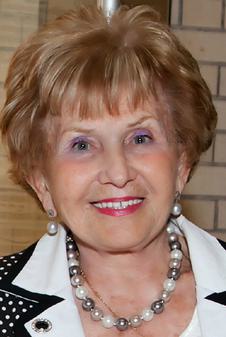
Joseph Tomasov
Joseph Tomasov (1920–2019) was born in Trstená, Czechoslovakia (now Slovakia). After the war, he graduated from Prague’s Charles University with a degree in engineering. In November 1968, after the Soviet invasion of Czechoslovakia, Joseph immigrated to Canada with his wife, Agnes, and their two children.
Joseph Tomasov is the author of From Loss to Liberation .
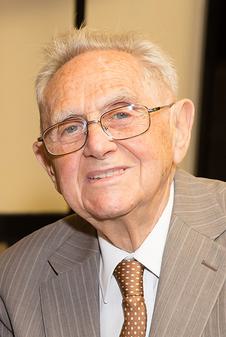
Peter Vas
Peter Vas (né Fried) (1940–2004) was the son of Elisabeth Ungar and Vilmos Fried. In 1943, his father was taken to a forced labour camp in Bor, Serbia, operated by the Siemens Construction Union; in 1944, he died on a death march. Peter and his mother survived the Holocaust in a Red Cross safe house in Budapest. His mother remarried in 1948 to Dr. Marcel Vas, who legally adopted Peter. After the 1956 Hungarian Revolution, Peter escaped Hungary, fleeing first to Austria and then to Montreal, where he joined his aunt and grandparents. In his youth, Peter was an avid speed-skater and bodybuilder, as well as an accomplished wrestler and boxer. He met and married Maria Kramer in 1963 in Budapest and they raised their two children, David and Sandy, in Montreal, where Peter worked in the clothing industry and eventually opened his own company. In an effort to work through some of his childhood trauma, Peter took to writing, which is how his thirty-page poem — excerpted in the Confronting Devastation anthology and titled “The Unending Past” — came into being.
Peter Vas is the author of “The Unending Past” from Confronting Devastation: Memoirs of Holocaust Survivors from Hungary.
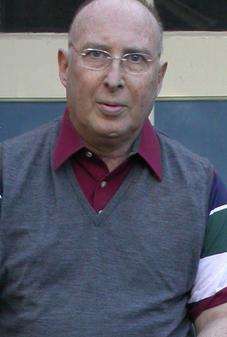
Leslie Vertes
Leslie Vertes (1924–2022) was born in Ajak, Hungary; he immigrated to Canada with his family in 1957. In Montreal, Leslie was actively involved in Holocaust education and volunteered for numerous organizations. In 2015, he received Quebec’s YMCA Peace Medal and the Governor General’s Caring Canadian Award in recognition of his volunteerism and contributions to the community.
Leslie Vertes is the author of Seul dans la tourmente and Alone in the Storm .
You can learn more about Leslie Vertes’s story by visiting Re:Collection
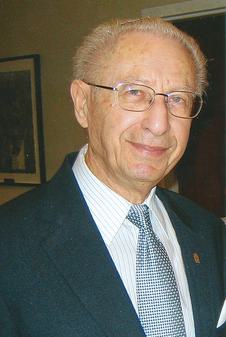
Imrich Vesely
Imrich Vesely (1917–1996) was born in the small town of Šurany, then part of the First Czechoslovak Republic (now Slovakia). In 1938, due to the rise of fascism and antisemitism in Slovakia, Imrich fled to Budapest, considered much safer at the time. One year later, he was drafted into a forced labour battalion, eventually sent to the Eastern Front to toil under gruelling conditions. In the face of violence and brutality, Imrich’s wit, daring and bravery helped him survive. After escaping across battle lines to the Soviets, Imrich was taken prisoner of war but was eventually able to volunteer with the Czechoslovak army-in-exile as a pilot in the air force. At the end of the war, Imrich left the army and returned to Bratislava, reuniting with his mother and sister. He married in 1950 and worked as a hardware store manager. In 1973, he and his family left Czechoslovakia for Austria, where Imrich worked in the import/export business. Imrich arrived in Canada in 1980 to join his son, Peter, and wrote his memoir in Hungarian three years later.
Imrich Vesely is the author of Only When I Laugh from Confronting Devastation: Memoirs of Holocaust Survivors from Hungary.
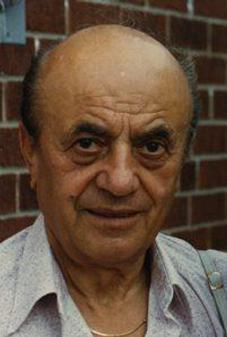
Anka Voticky
Anka Voticky (1913–2014) was born in the small town of Brandýs nad Labem in the Austro-Hungarian Empire and moved to Prague, Czechoslovakia (now Czech Republic), in 1918. In 1948 she and her family fled the Communist regime in Czechoslovakia and settled in Montreal. Anka passed away in 2014 at one hundred years old.
Anka Voticky is the author of Frapper à toutes les portes and Knocking on Every Door .
You can learn more about Anka Voticky’s story by visiting Re:Collection
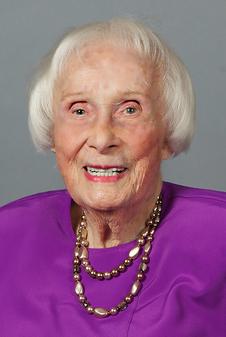
Sam Weisberg
Sam Weisberg (né Avraham Gajer) (1927–2019) was born in Chorzów, Poland. After liberation, Sam lived in the Bergen-Belsen displaced persons (DP) camp, where he met his wife, Rosa. They immigrated to Toronto in 1959.
Sam Weisberg is the author of Carry the Torch and Passeur de mémoire.
You can learn more about Sam Weisberg’s story by visiting Re:Collection
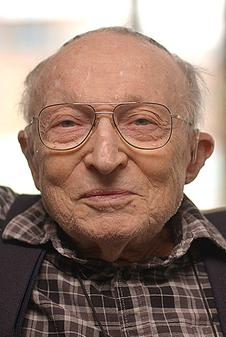
Babey Widutschinsky Trepman
Babey Widutschinsky Trepman (1924–2009) was born in Šiauliai, Lithuania. She survived the war alongside her sister, Dora, after being held in the Šiauliai ghetto and the Nazi camps of Stutthof and Bergen-Belsen, from which they were liberated on April 15, 1945. After the war, in the displaced persons (DP) camp at Bergen-Belsen, Babey was the musical accompanist for the Kazet Theatre. She met and married Paul Trepman in Bergen-Belsen in 1946, and in 1948 they immigrated to Montreal, where they started a new life together. Babey taught hundreds of kindergarteners at the Solomon Schechter Academy for more than four decades and was an avid folk dancer, reader and traveller who also loved to attend concerts, theatre and lectures. Babey had two children and six grandchildren. She passed away on June 7, 2009.
Babey Widutschinsky Trepman is the author of Living Every Minute from Before All Memory Is Lost: Women's Voices from the Holocaust and Vivre chaque instant from Un combat singulier : Femmes dans la tourmente de l’Holocauste.
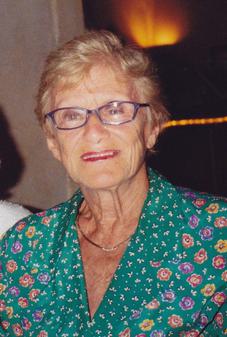
Mina Wolkowicz
Mina Wolkowicz (née Chana-Mindla Herzlikowicz) (1920–2003) was born in Piotrków Trybunalski, Poland. When the war broke out, she was in the Soviet Union with her husband, Herman Geisler. They were convicted as spies and sent to the Gulag prison camps. Their daughter, Lily, was born on December 22, 1943, after Mina and Herman had managed to reunite; he later died on the front lines. After the war, Mina met and married Pinchas Wolkowicz in Lodz; their son Henry was born in 1948. Mina and her family immigrated to Canada in 1949 and lived in Montreal, where her son Nathan was born. Mina worked as a furrier and was also a writer — many of her articles were published in the Jewish Forward. When Mina retired from work, she and took up sculpture and painting. She was extremely successful and had several shows. Mina was also involved in helping Russian immigrants in Canada. In the 1990s, Mina moved to Cambridge, Ontario, to be closer to family. Her daughter, Lily, and son Nathan both developed multiple sclerosis and passed away, in 2008 and 2011, respectively. Her son Henry lives in Cambridge.
Mina Wolkowicz is the author of My Life in the Gulag from Before All Memory Is Lost: Women's Voices from the Holocaust and Ma vie au Goulag from Un combat singulier : Femmes dans la tourmente de l’Holocauste.
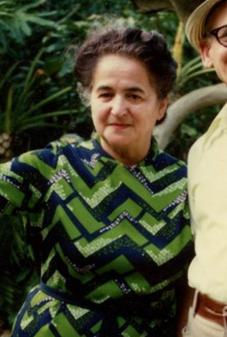
Fela Yoskovitz-Ross
Fela Yoskovitz-Ross (née Pacanowska) (1921–2020) was born in Lodz, Poland. She endured the Lodz ghetto — where she worked in factories making the upper parts of shoes and the military emblems on uniforms — with her parents and two brothers until the ghetto was liquidated. In August 1944, Fela and her family were deported to Auschwitz-Birkenau. Fela was later transferred to a forced labour camp in Hamburg, Germany, a subcamp of the Neuengamme concentration camp. In September 1944 she was transferred to another subcamp in the Hamburg suburb of Poppenbüttel. In early April, the camp was evacuated and Fela was deported to the Bergen-Belsen concentration camp; she was liberated by the British army on April 15, 1945. Fela met her husband, Jacob, in Bergen-Belsen and they immigrated to Canada, settling in Montreal, in 1948. Fela raised her two children, Mike and Allen, and was president of the Hadassah philanthropic organization in the late 1960s and 1970s.
Fela Yoskovitz-Ross is the author of “Auschwitz” from Before All Memory Is Lost: Women's Voices from the Holocaust and Auschwitz from Un combat singulier : Femmes dans la tourmente de l’Holocauste.
Irene Zoberman
Irene Zoberman (1914–1982) was born in Sandomierz, Poland. She was the second-eldest of four daughters. During the war, she fled from the Sandomierz ghetto and spent much of the war years in Warsaw, living under false identity documents and passing as a gentile. Irene became an active member of the anti-German underground. She located false papers to help her family members find safety in Poland and raised money to fund her parents’, sisters’ and other Jews’ escapes from forced labour camps. Irene found places for them to hide in Warsaw and acquired equipment to manufacture false papers to save many Jews. After the war, Irene spent time in Canada, Israel and Poland. She was married twice relatively late in life and did not have children of her own, but was close to her sisters and their children. Irene wrote her memoir in Polish in the early 1980s.
Irene Zoberman is the author of The Forces of Endurance from Before All Memory Is Lost: Women's Voices from the Holocaust and Une force insondable from Un combat singulier : Femmes dans la tourmente de l’Holocauste.
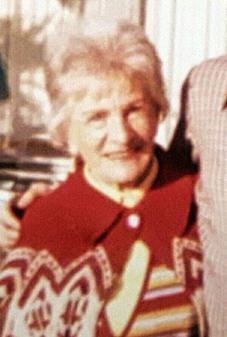
Fela Zylberstajn Grachnik
Fela Zylberstajn Grachnik (1924–1997) was born in Lodz, Poland, where she had a loving relationship with her parents and extended family. During the war, she was interned in the Lodz ghetto, Auschwitz-Birkenau and the Gross-Rosen concentration camp. Fela was the sole survivor of a family of eighty people. In 1946 she married Moishe Grachnik in the displaced persons camp in Schwandorf, Bavaria. Their daughter, Myra, was born a year later. In 1949, they immigrated to Israel, where their son Issie was born. In 1953, the family immigrated to Montreal, where their son Allan was born. Fela and her husband joined the Lodzer Society, where she eventually became President of the Ladies’ Auxiliary. Under her leadership the organization participated in numerous local and Israeli projects. She was a beloved leader, respected by all who knew her. Fela had three children, five grandchildren and nine great-grandchildren. She passed away on September 8, 1997, at age seventy-three.
Fela Zylberstajn Grachnik is the author of With Great Pride from Before All Memory Is Lost: Women's Voices from the Holocaust and Ma famille, ma grande fierté from Un combat singulier : Femmes dans la tourmente de l’Holocauste.
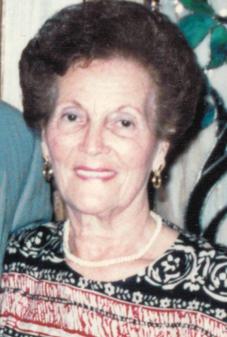
Free Books and Educational Materials
We help teachers bring the subject of the Holocaust into their classrooms, using first-person narratives as a way for students to connect with the history of the Holocaust through survivors’ experiences. Our Holocaust survivor memoirs, educational resources and programming are free of charge and available in both French and English.

